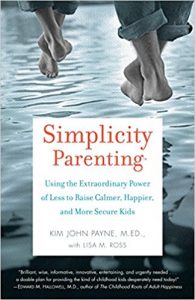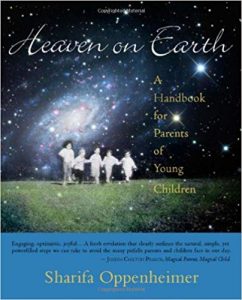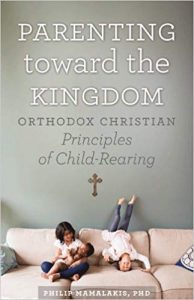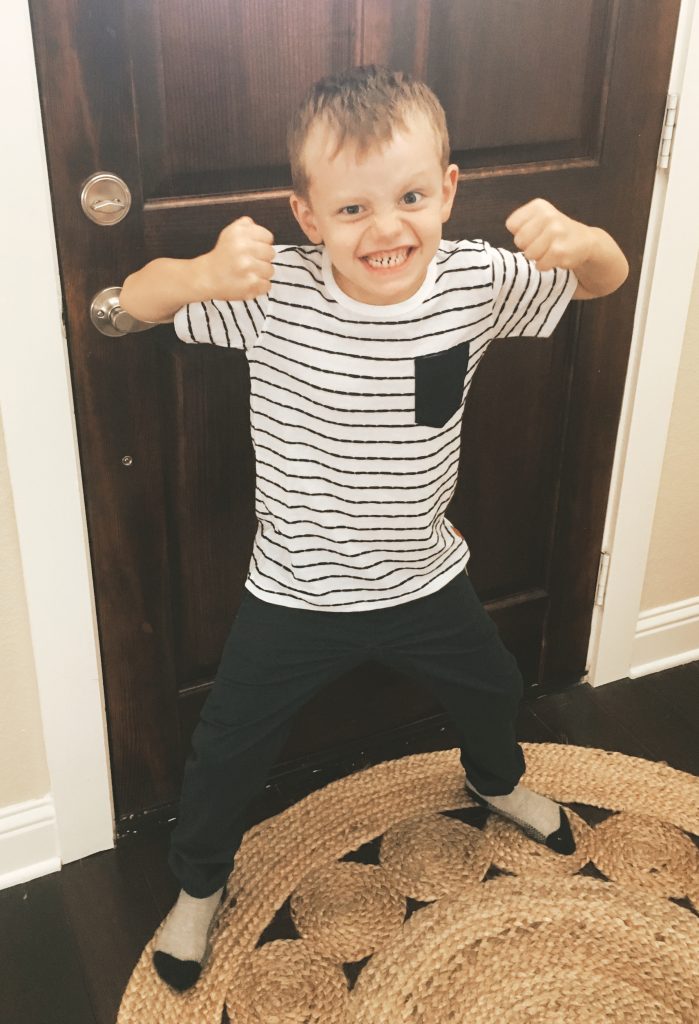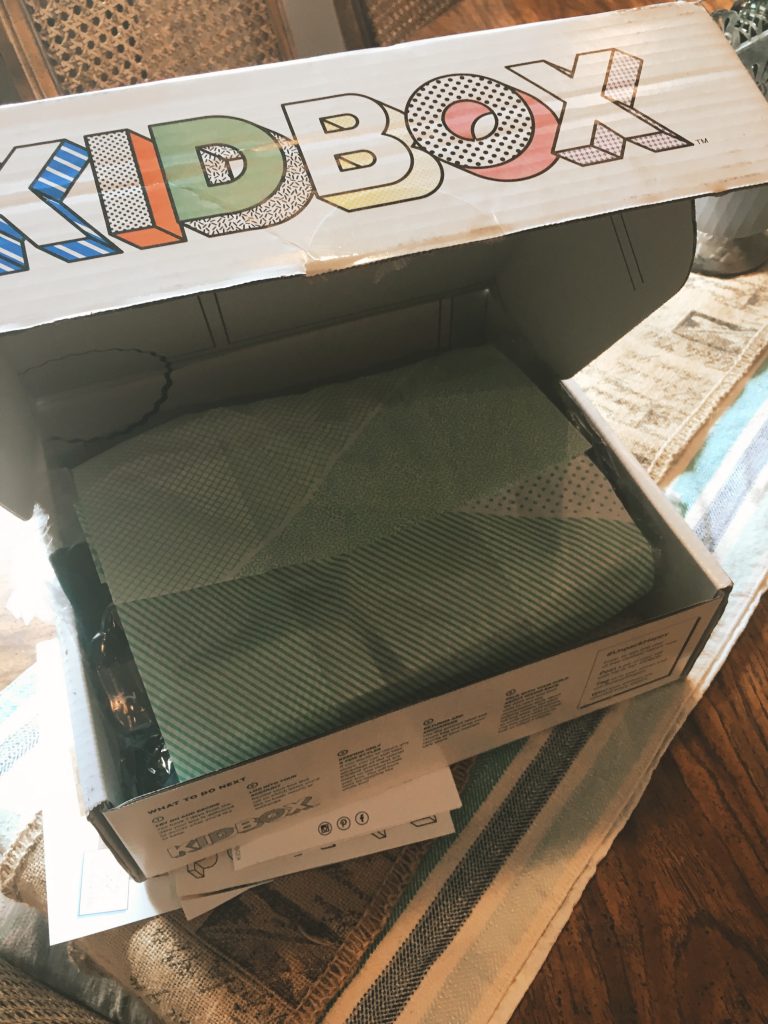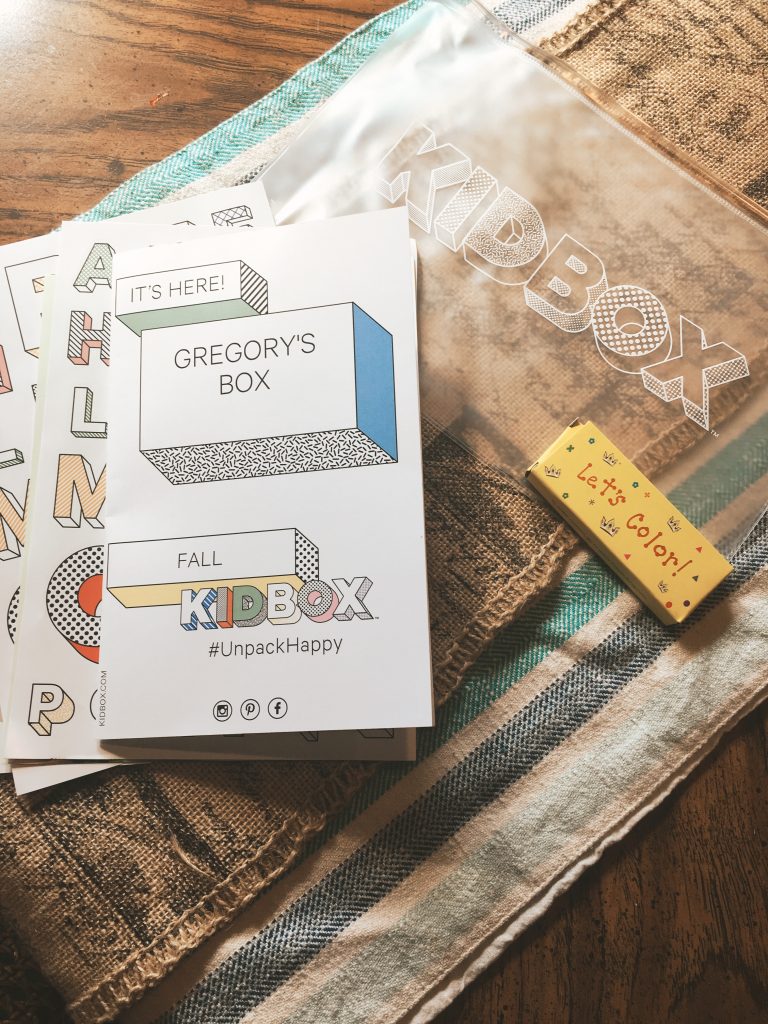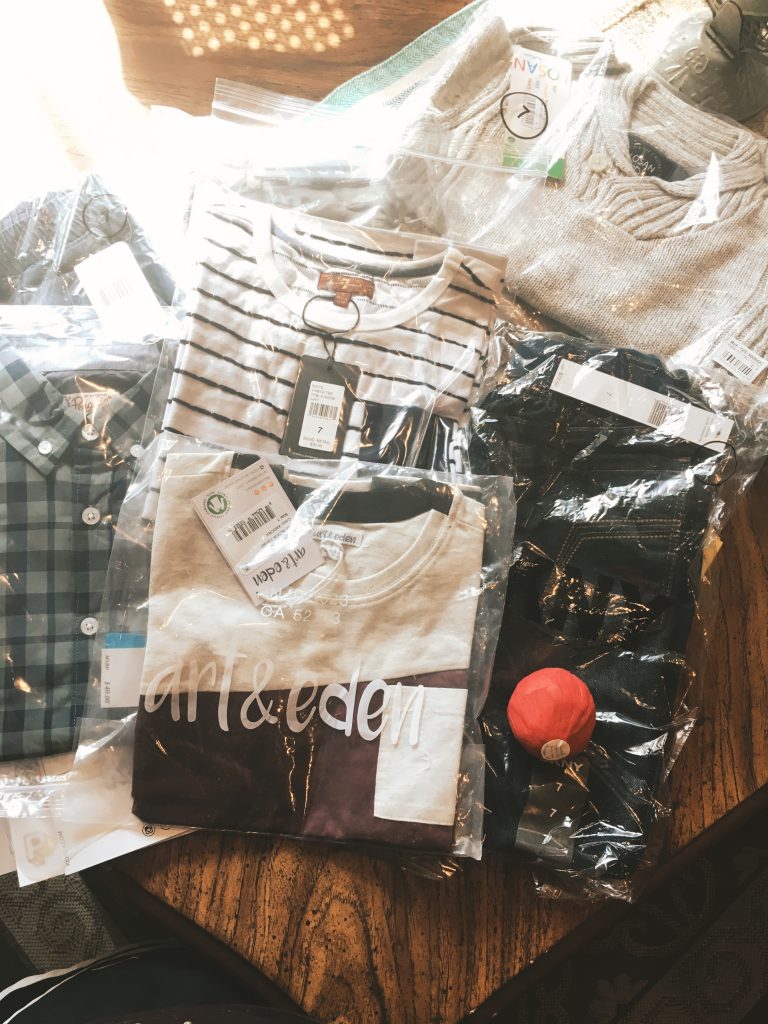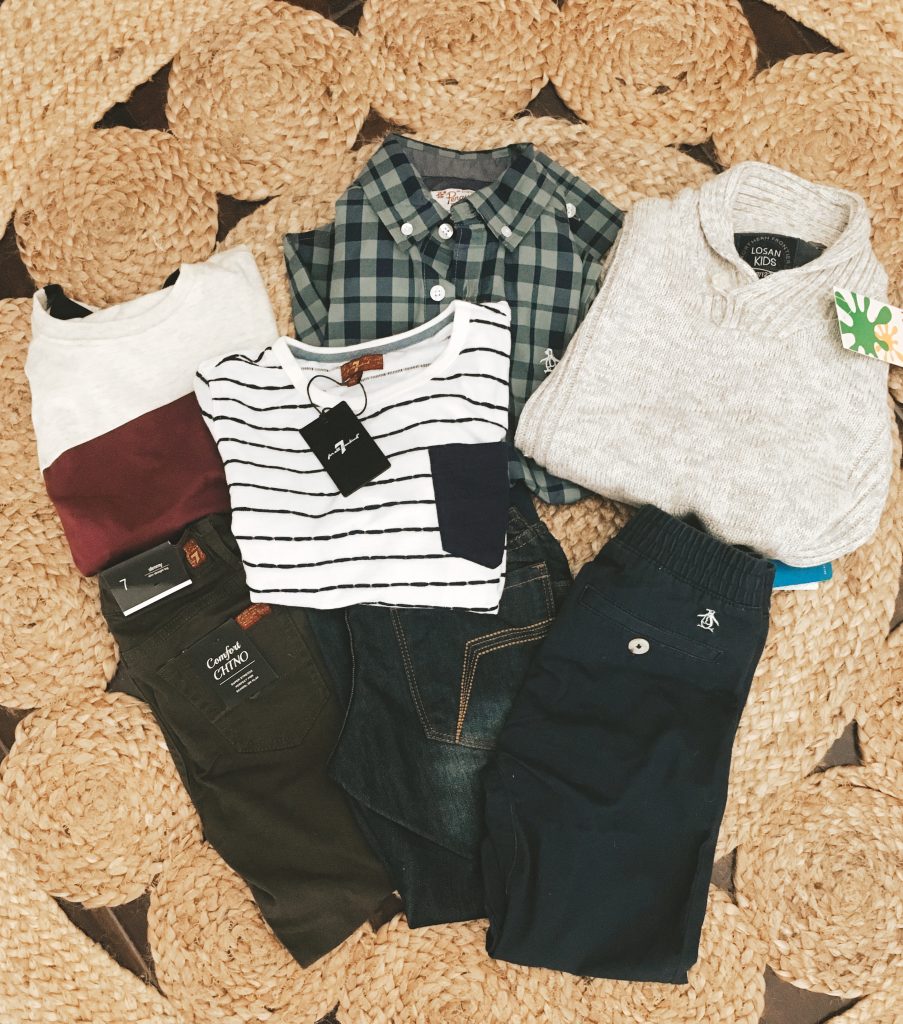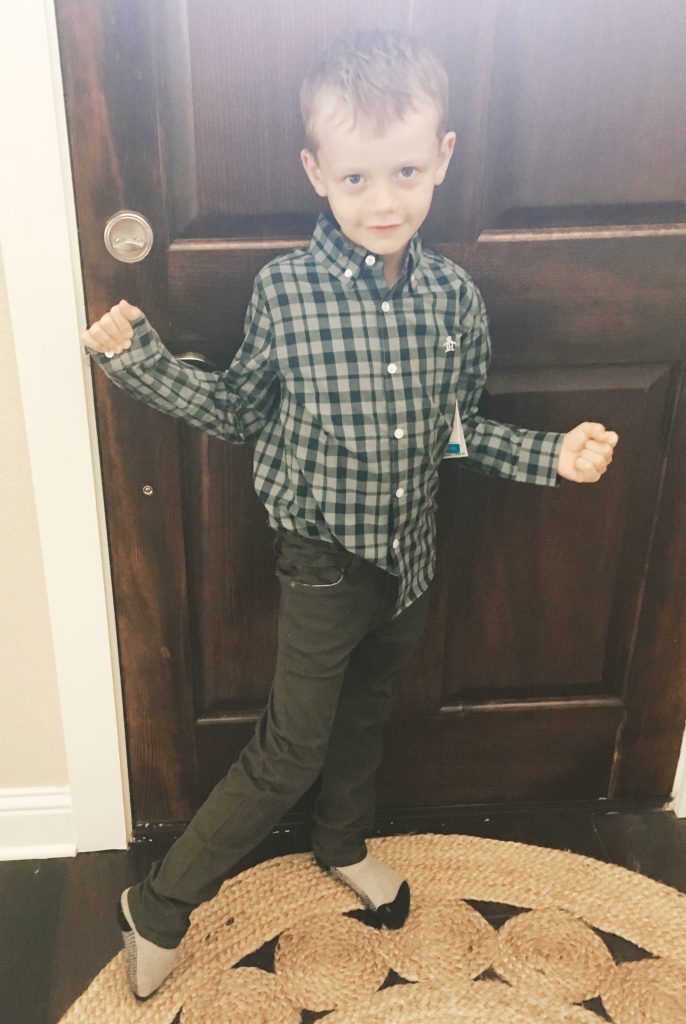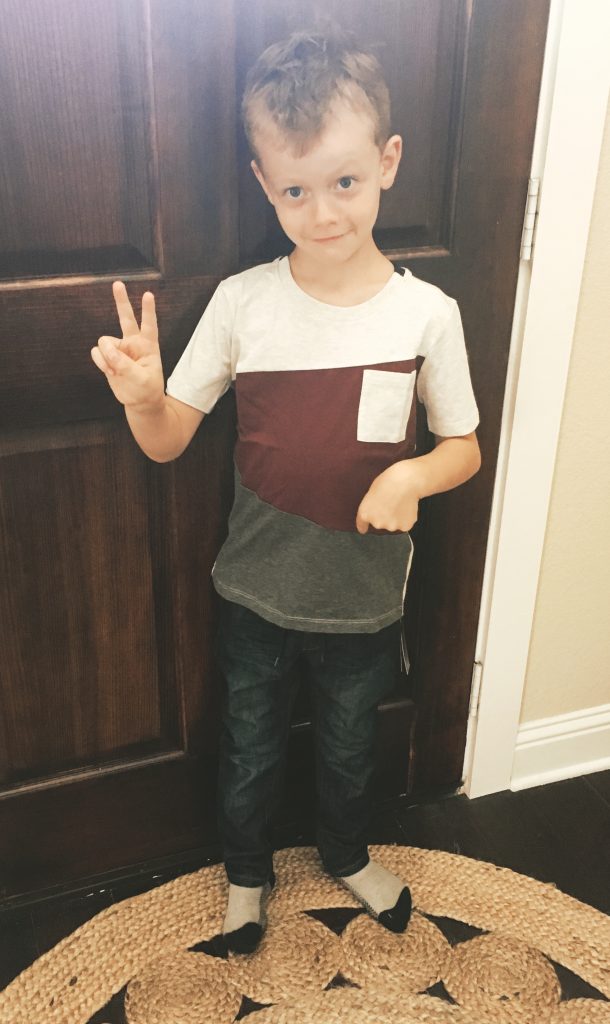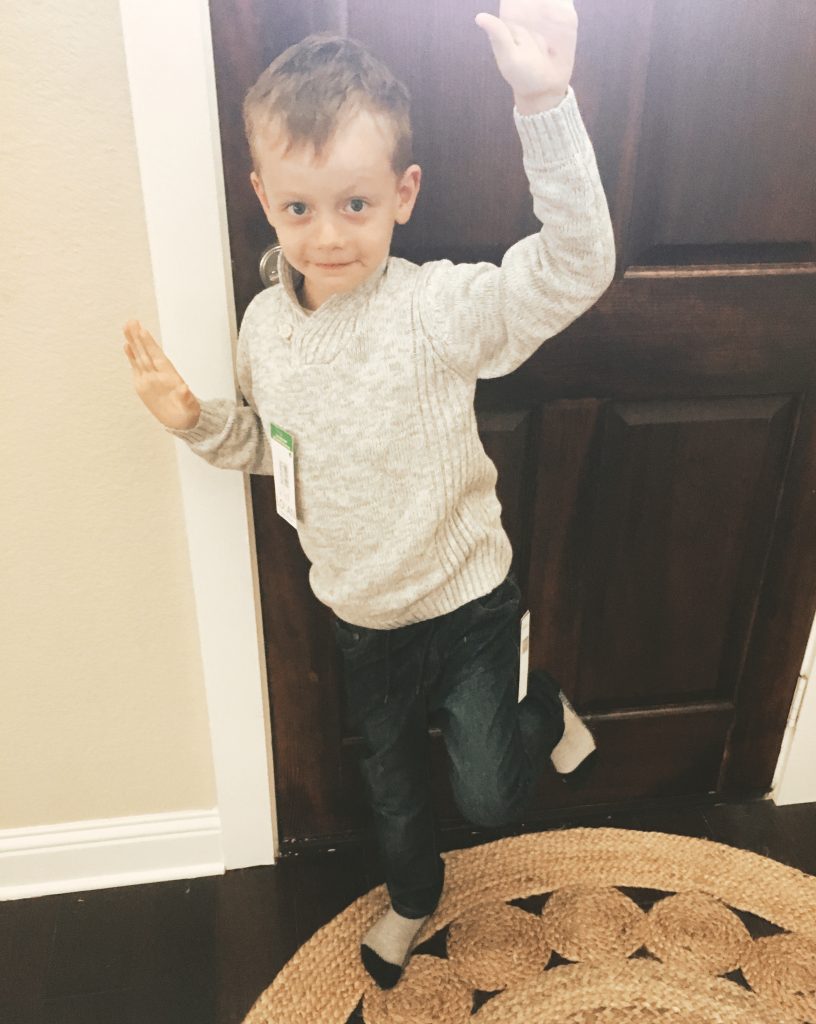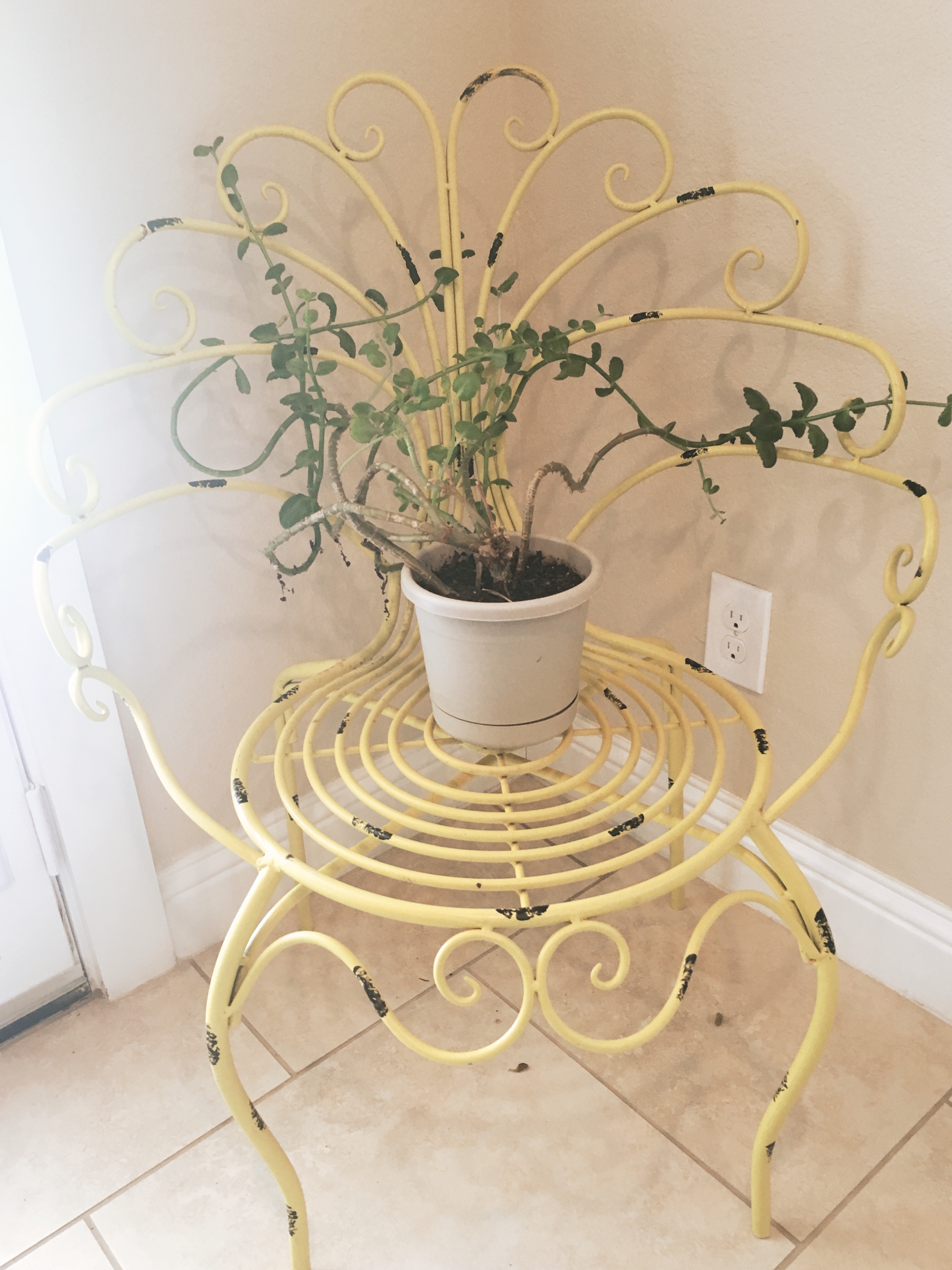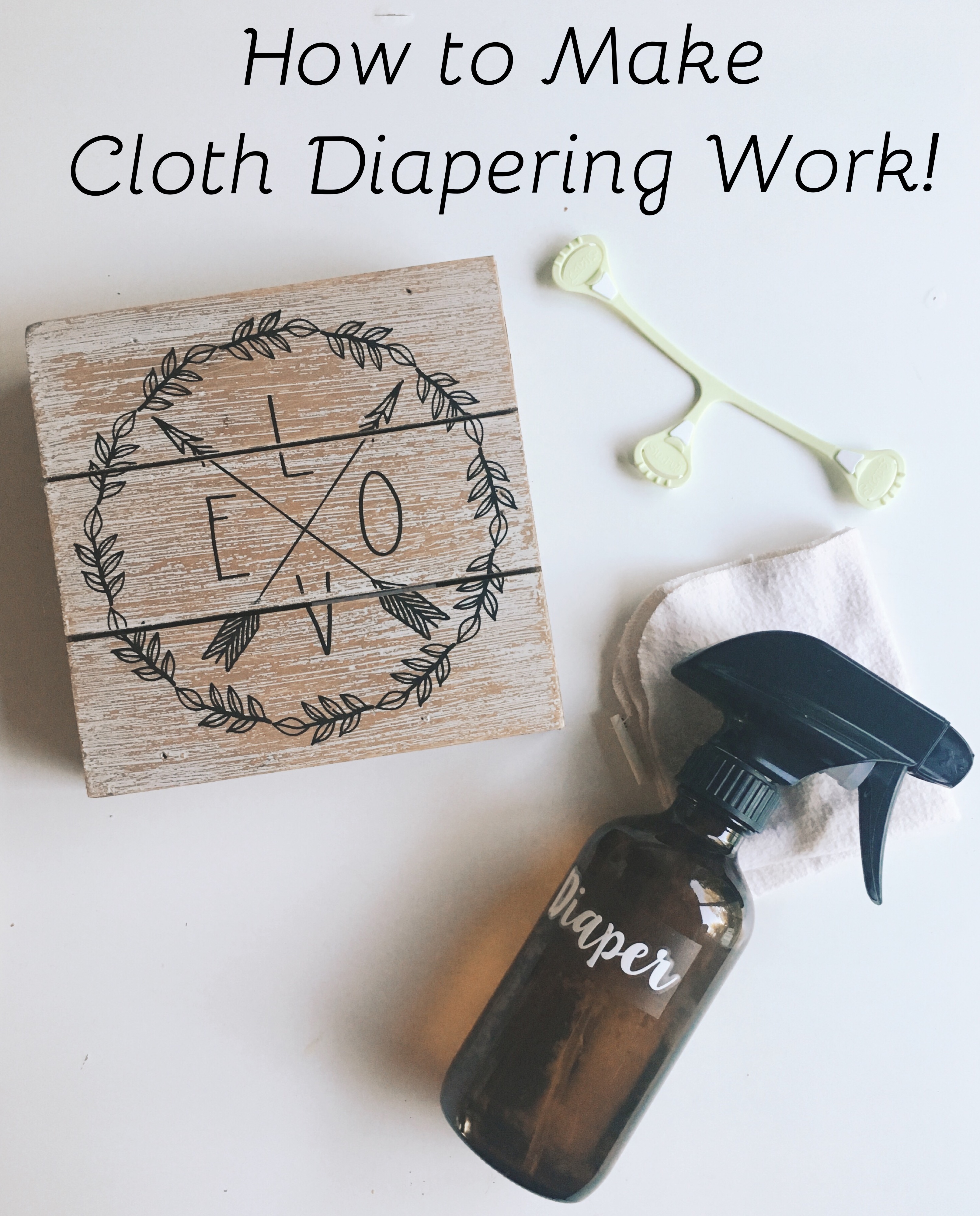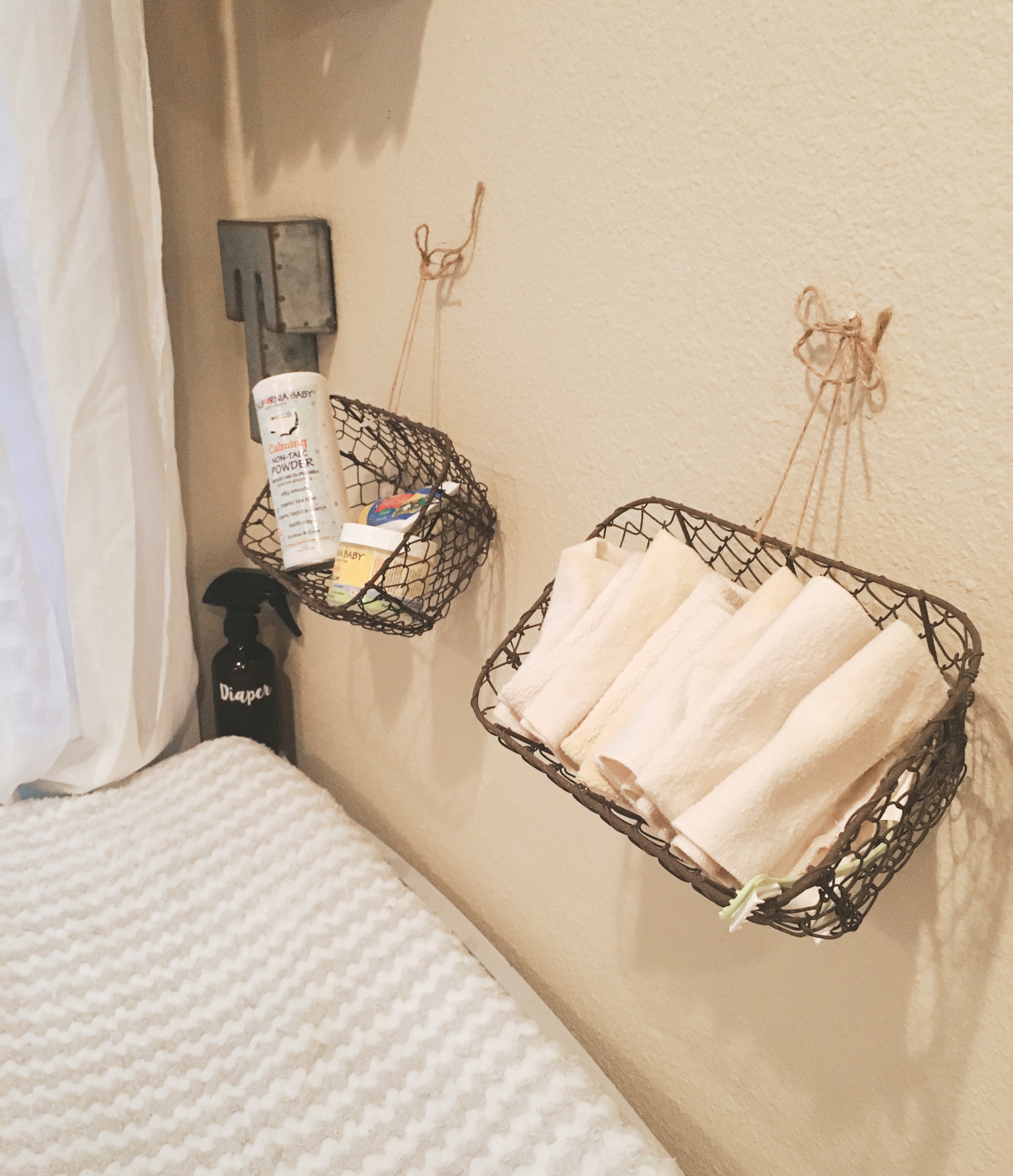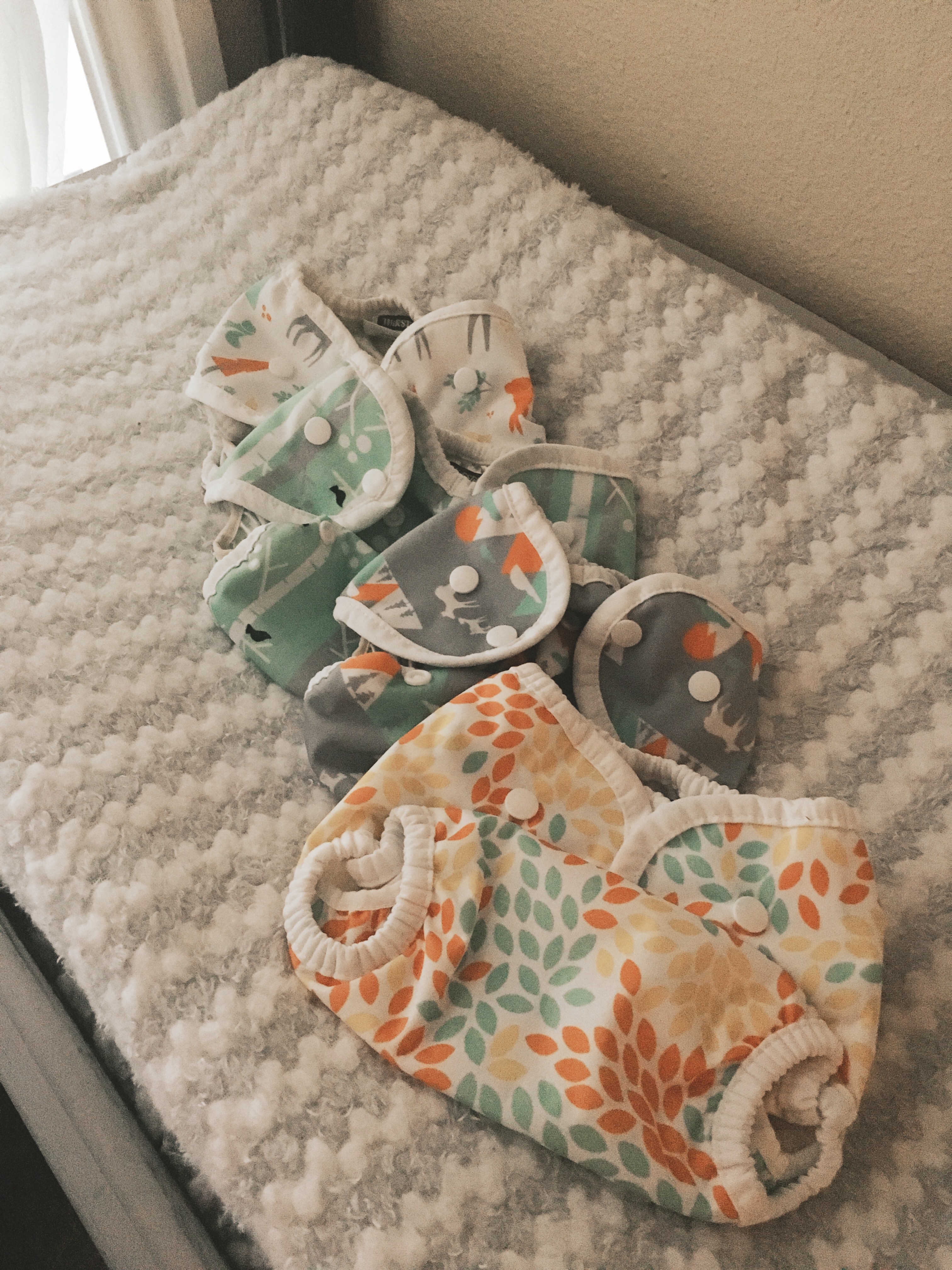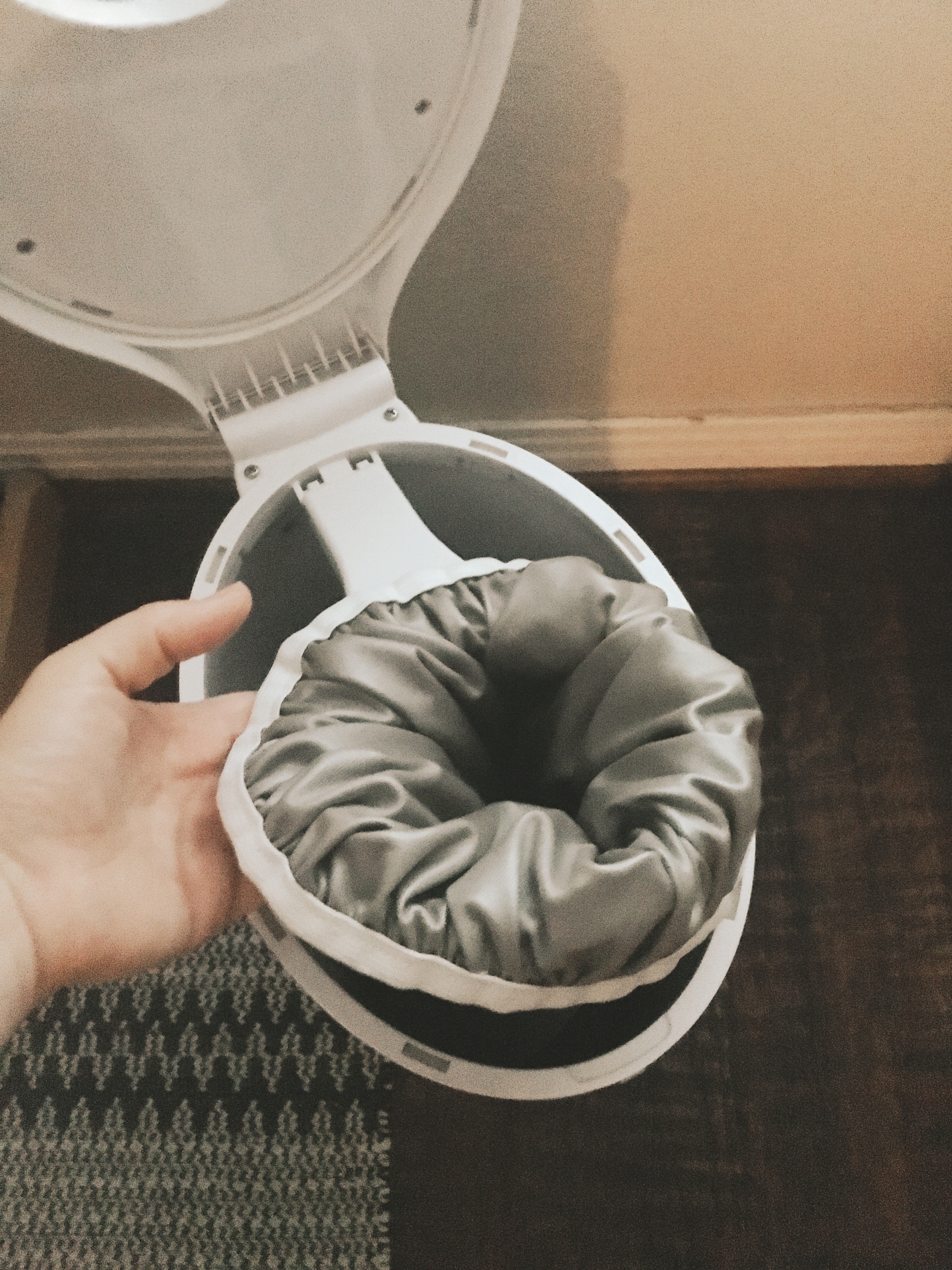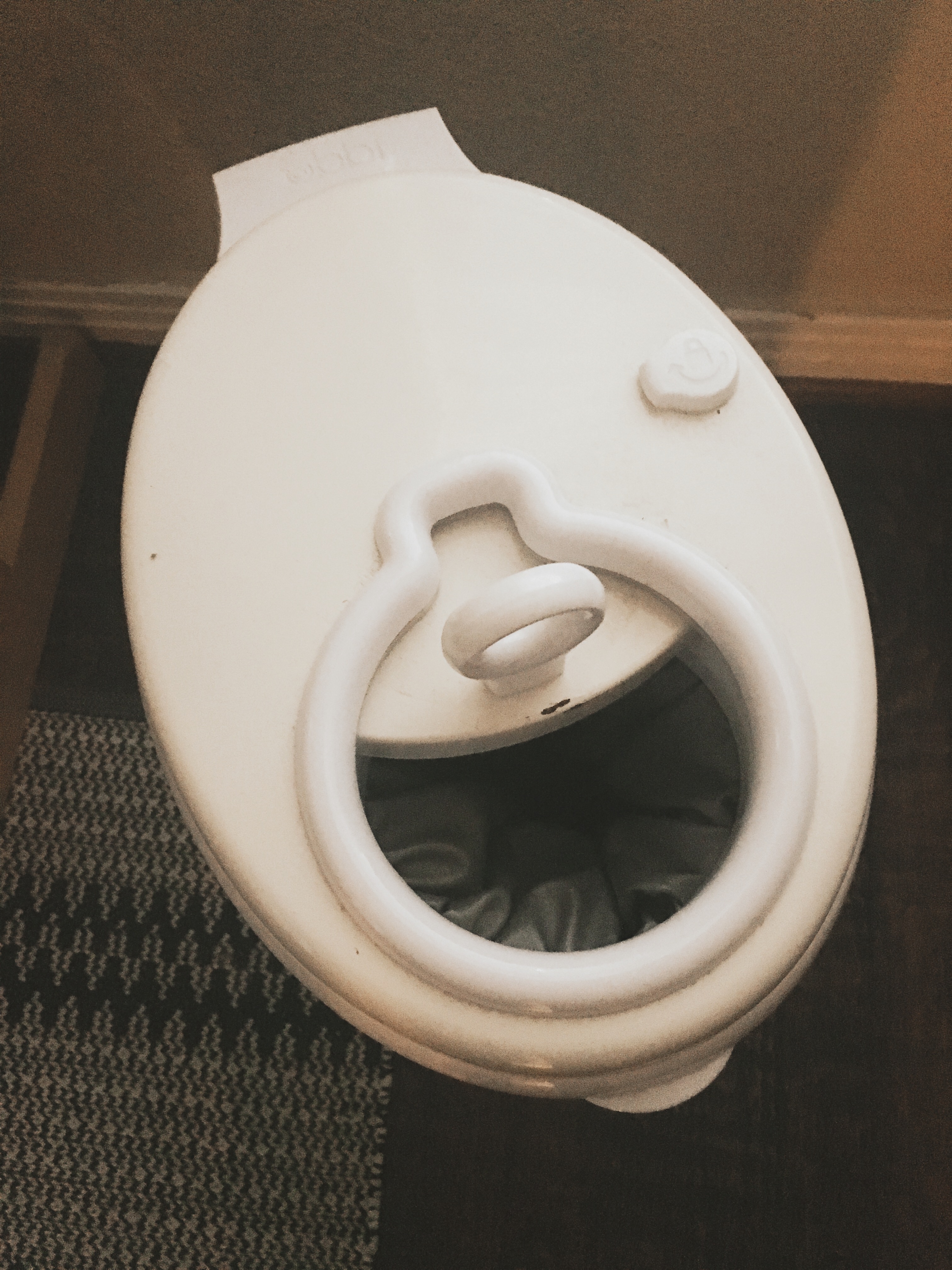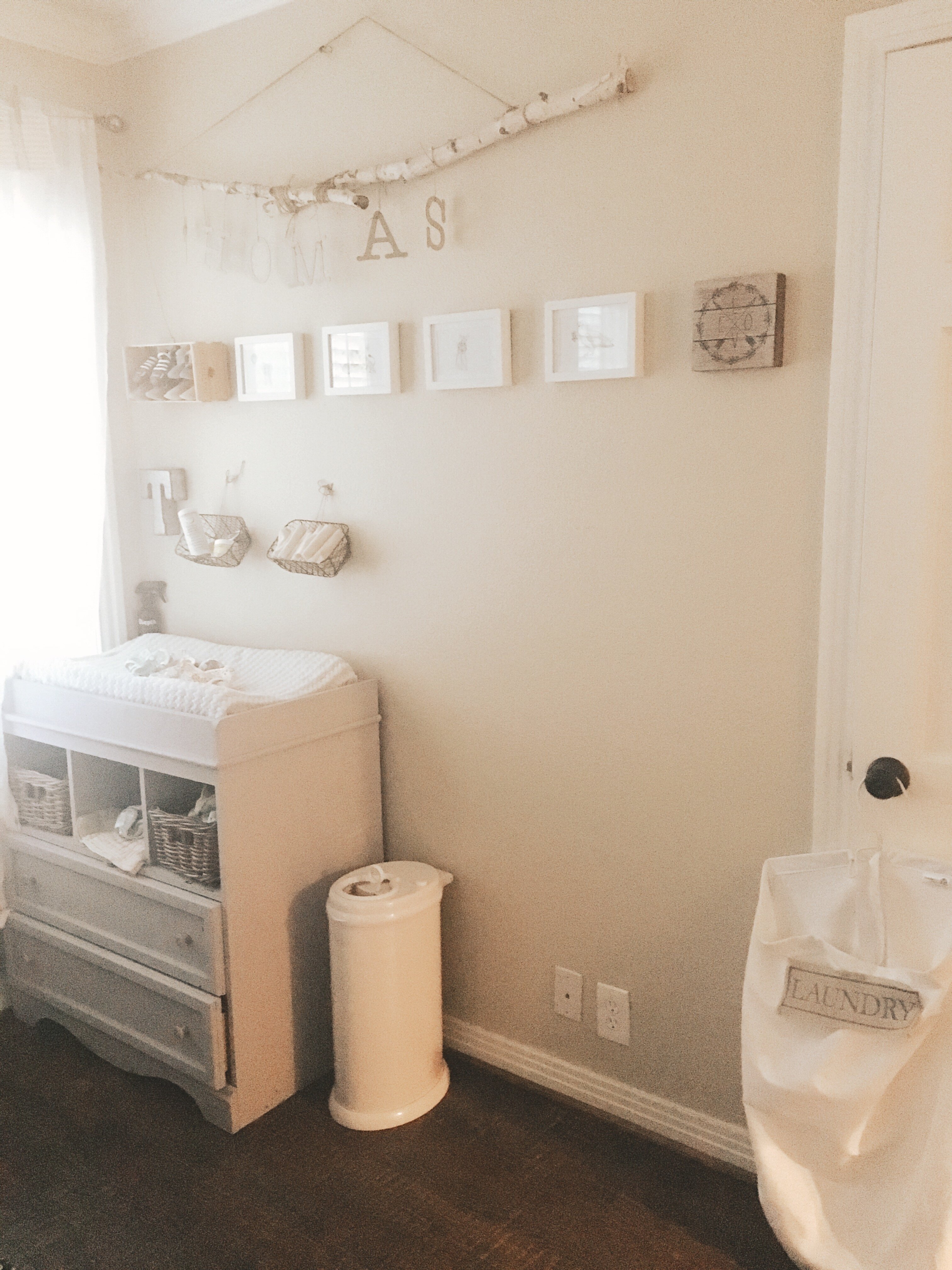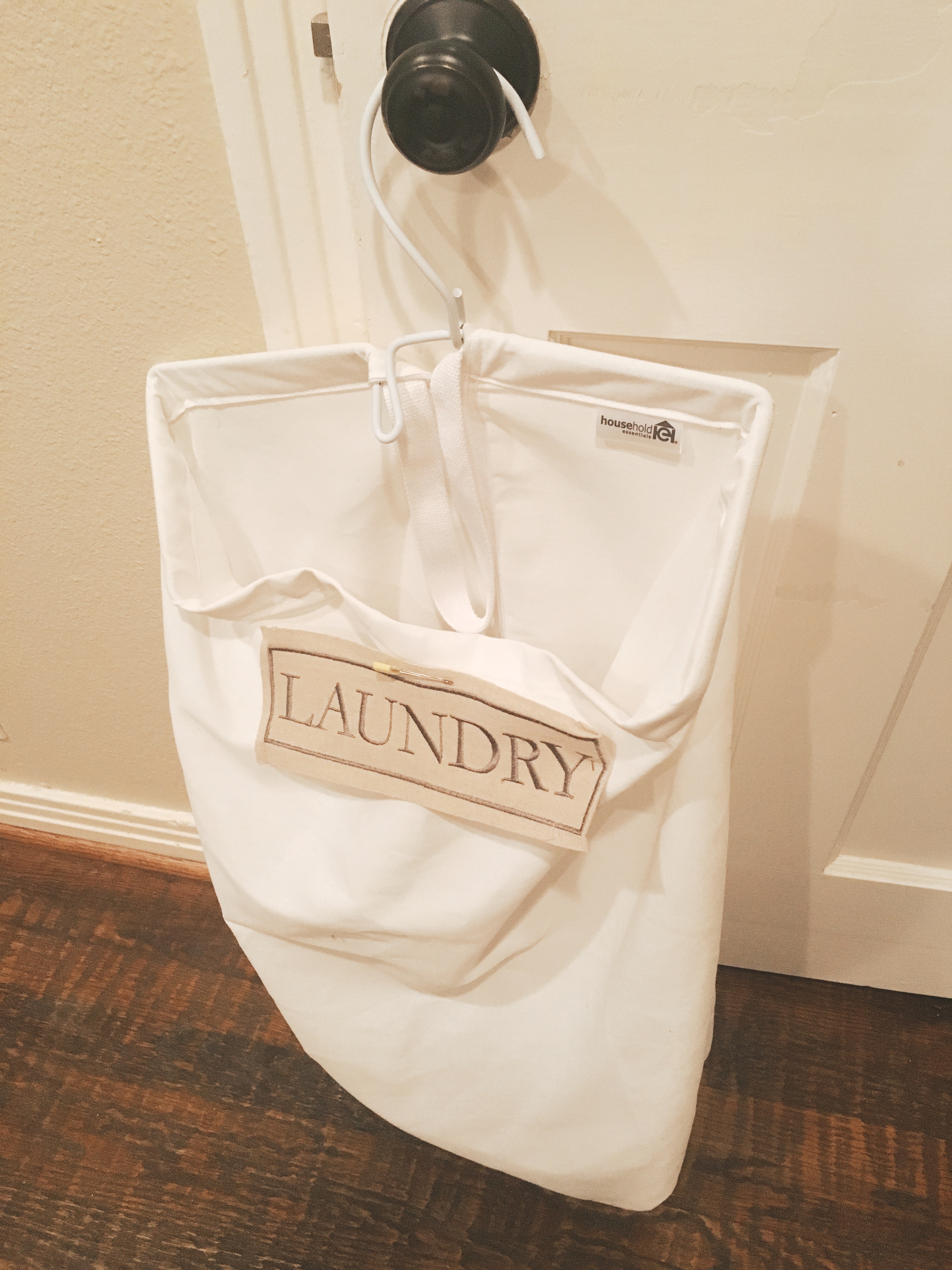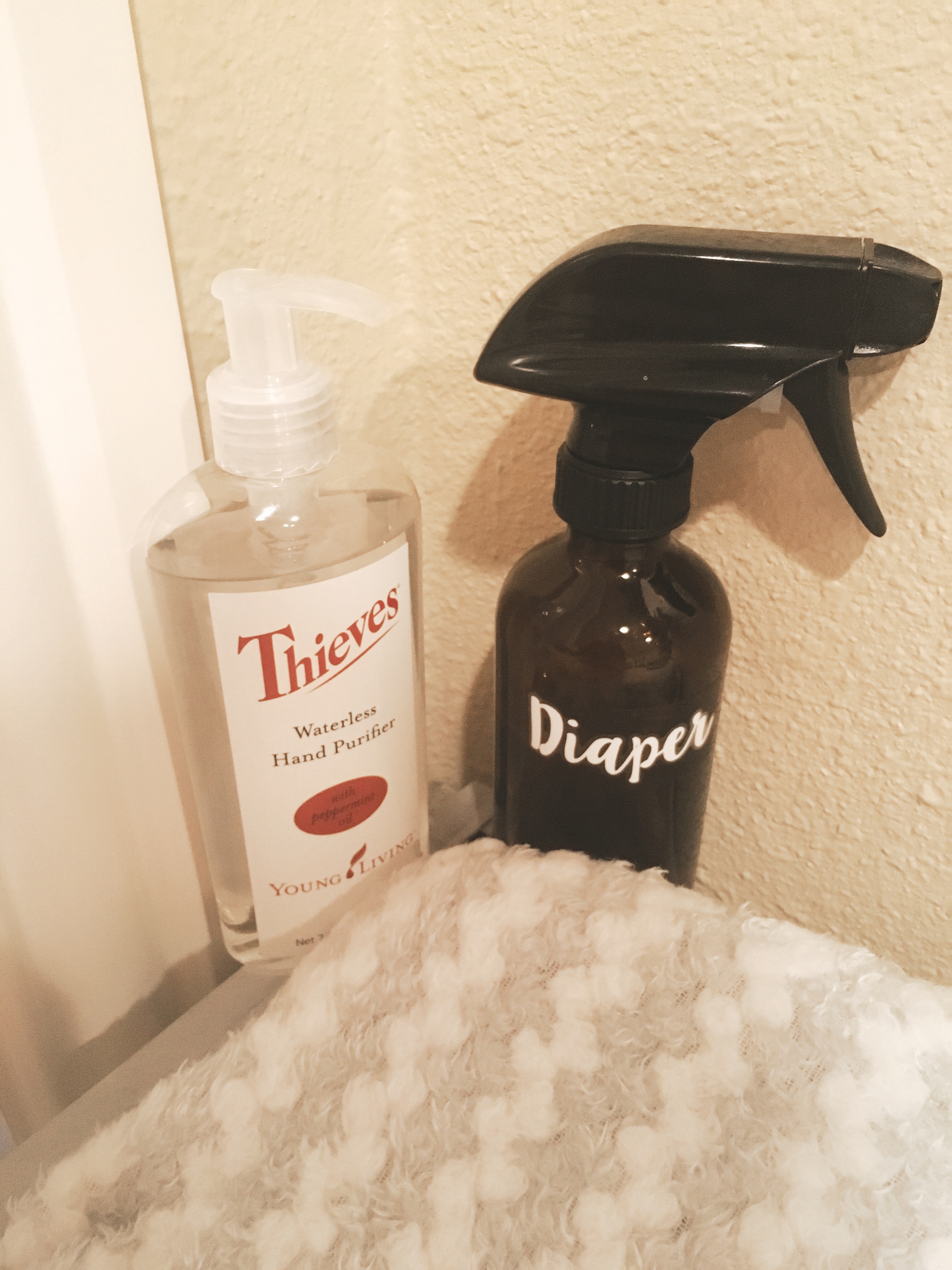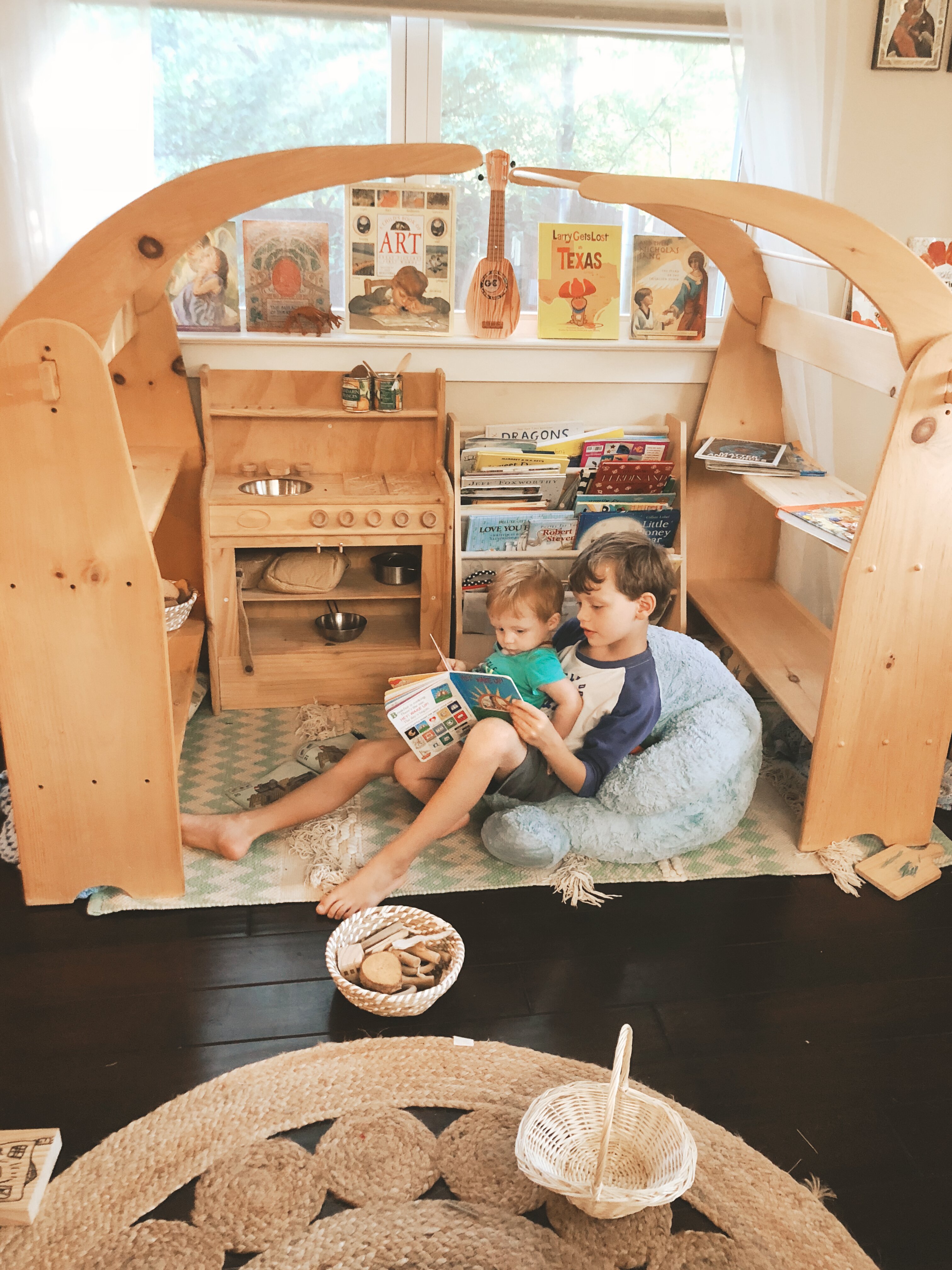
It’s been 3 years since my first post about homeschooling, and I’ve had a lot of people ask me what we’re doing and why. One of the biggest questions I get is about why the boys aren’t enrolled at the school Jesse teaches at, and I’ll be honest, we’ve really struggled with the decision. His school is, in my opinion, one of the best (if not THE best) schools in all of Dallas and they definitely teach a child-centered, soul filled classical approach, with tiny class sizes. Every year we go back and forth, re-evaluating whether homeschooling is still the direction we want to go in, and so I thought I would write the reasons for our decision down and answer the question fully, in two parts.
But before we get started, I want to first and foremost express a disclaimer. The views I express here are my own, after lots of thoughtful deliberation about my family and the personalties contained therein. This does not mean that I think this is how EVERY family should operate, although I do think that families should be intentional about what it is they decide for their own situation. No one should orient their family and the lives therein around fear or peer pressure. But I truly believe that every family unit is sacred and should be treated with reverence, and I would never desecrate your own family culture by “inserting” my own values and judgments onto yours.
In addition, if what you want is a post saying, “It’s all good, it’s a mess, we’re all doing our best and failing” to make you feel better about a current situation, I have a lot of moms and bloggers I can point you to! We all need a healthy dose of perspective like that every now and then. One of my favorite posts I’ve ever written was when I talked about why I don’t care about opinions on the internet. I still love to re-read my words from 4 years ago, even though I’ve grown and healed in a lot of ways since then (we were currently in the middle of our foster care situation, and I was receiving all sorts of ugly unsolicited parenting “advice” from all corners of the globe. It was fun. Not.).
This is not going to be one of those posts. I’ve learned a lot about my personality over the years (I’m a hardcore Ennegram 1, Reformer, if you’ve taken that test) and the last thing I am is docile or easy going. When I care about something, I tackle it head on and give it 100%. It’s taken me a long time to learn that there is nothing “broken” about the way I operate on this regard, and that the world needs those of us who can lead the way on certain issues, just like the world also needs the 7s and the 9s to have fun, keep the peace and keep us all in harmony.
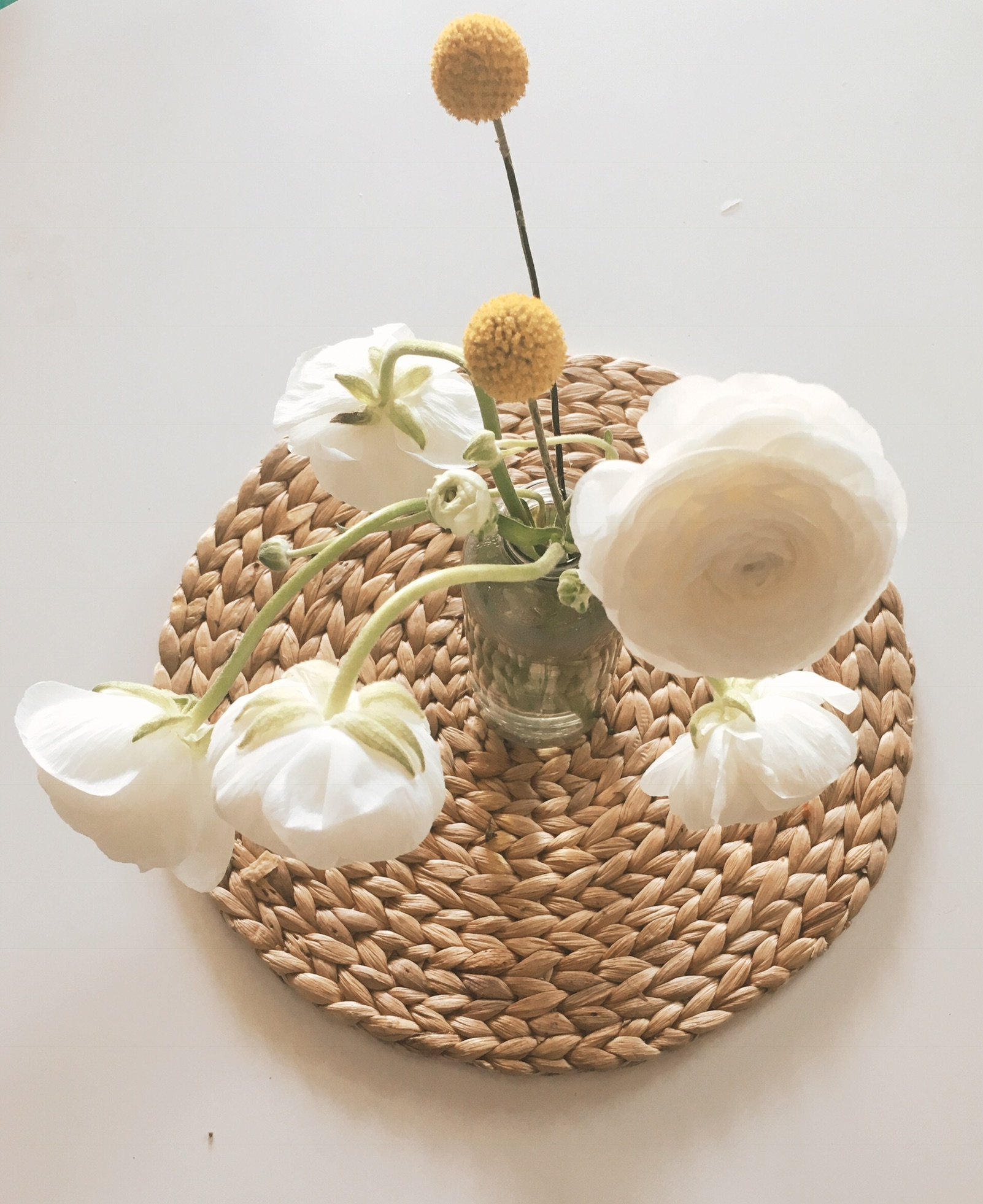
I’ve done a few social media posts about our current lifestyle and education choices, and have had quite the outpouring of questions and comments. It got me thinking that there must be other moms out there who think like I do, or would feel inspired with what we’re doing. Perhaps some of this will resonate with you. I hope it does. Maybe you’ll think we’re a bit crazy. Spoiler alert: we are. 😉
But what I truly hope is that no one sees this post as an indictment on their own choices, because that is never my intention. There is always a tendency for moms to read everything someone writes (especially if we know them personally) as a criticism of our own parenting choices, as we insert ourselves into the story-line. Rest assured, this post is doing nothing of the sort. We are all doing our best, and we are all here for each other.
K?
Let’s dive in.
The first part I want to explore is the lifestyle behind academic homeschooling. I firmly believe that in everything we do, our lives have to reflect the academic teaching, otherwise it won’t stick. Children learn best through story and example, and what story or example is stronger than our own day to day lives as parents? I once heard the quote, “Don’t be worried that they ‘never listen’, be worried that they’re always watching.” This quote has impacted me greatly, and made me realize that if I want to impart anything to my kids, it’s going to have to start with me. My lifestyle. My choices. If I want them to grow up peaceful, respectful of authority,against the grain of a materialistic fast paced culture, then it starts with my own example. Out of all the things I strive to succeed in as a parent, this is the most important to me.
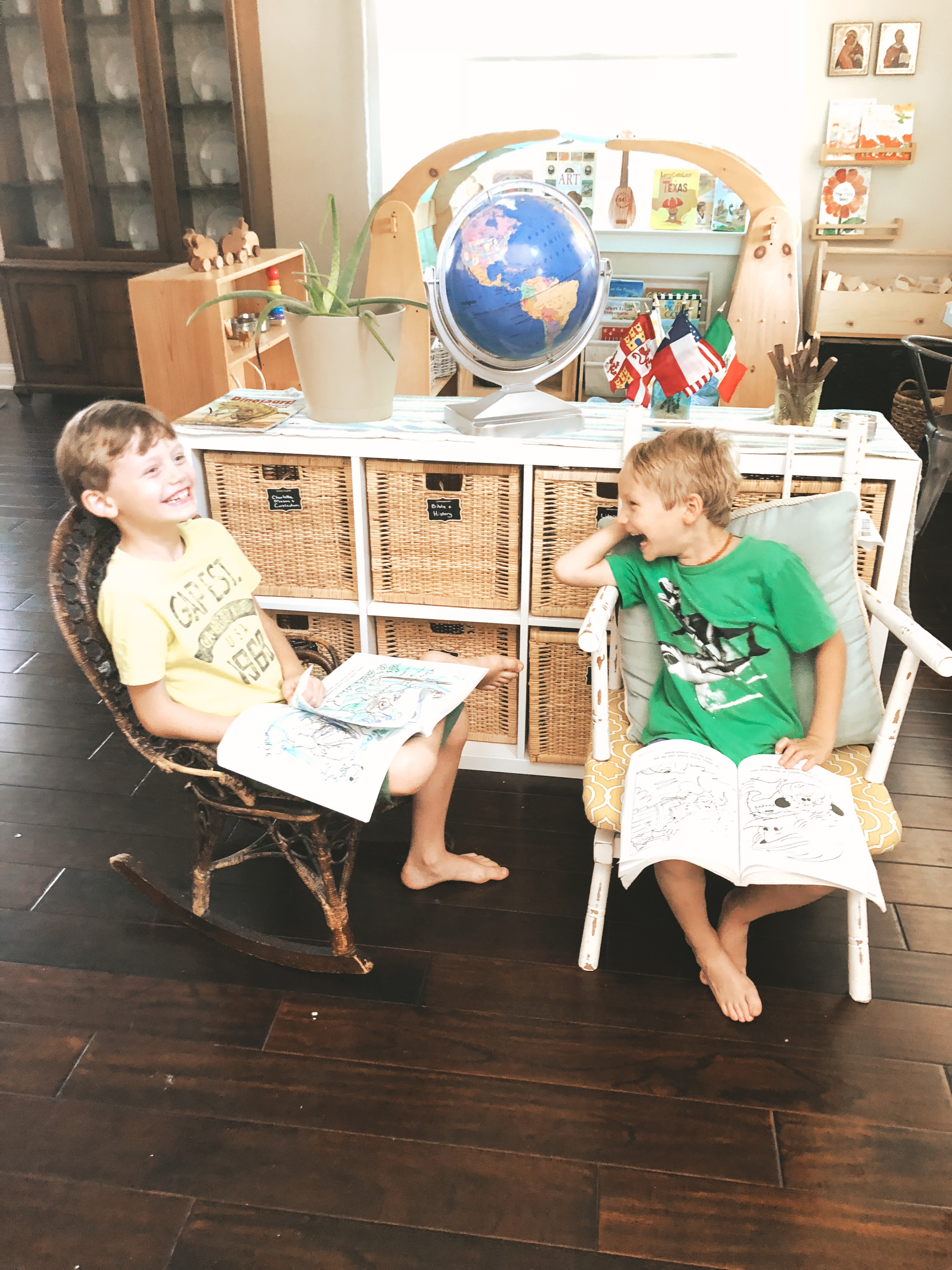
Because here’s the honest truth. Deep down, I don’t care if my kids are the smartest, most advanced, or if they get into lots of great colleges (I actually believe that most of academia will be restructured and that the landscape will look entirely different by then anyways, but that’s a whole other story!). I know this is weird to hear from us, with my MA in English, and Jesse more than halfway done with his PhD in philosophy. But seriously, I don’t care very much about academic achievement when it comes to my kids. My identity and success as a parent isn’t built around it anymore, and I don’t need that kind of pressure or negativity in my life, where every grade or accomplishment of my children seems like a direct reflection of me as their parent (magnified x10 because of our decision to homeschool!). That being said, I believe that the kind of thing we have in mind academically, will get them where they need to go, and that they will shine and excel if/when we ever transfer them into school. But their academic “honors” or prestige are not where my desire is focused.
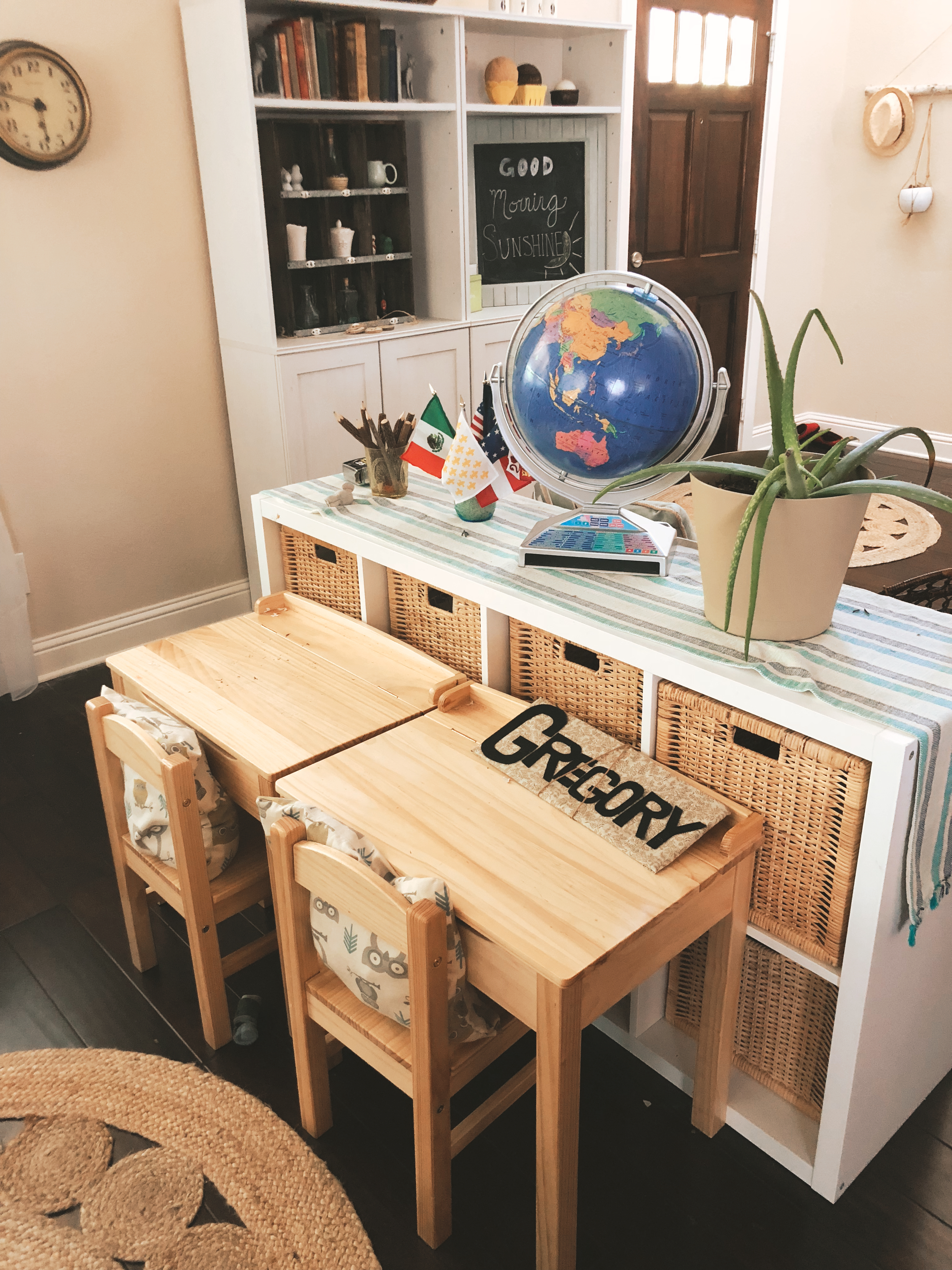
What I want my kids to be is WHOLE people. I want them to be lovers of the kind of beauty that resonates deep within their souls, and awakens them to the truths built into the world around us. I want them to be compassionate, reasonable and sound, not swayed by everything society says or does. I want them to feel a deep sense of joy and peace when they think about the coming day. I want them to know their own backyard, the dirt, the air, the grass, as well as they know their own hand. I want them to know responsibility. I want them to speak kindly and comfortably with others not just their age or economic/sociological background.
I also want them to love the church just as much as Jesse and I do. Statistically speaking, the only way this latter part is going to happen is if we, as parents, show our own commitment to our faith in everything we say or do. I cannot expect my children to think church is important if I don’t make it important, which is one of the reasons we pray as a family, have icons in every room of our house, and attend church at least 2x/week. It’s not just healthy for us, I believe church is their HOME, and as such, it should feel as familiar as home, which only comes through regularity and integration of the two.
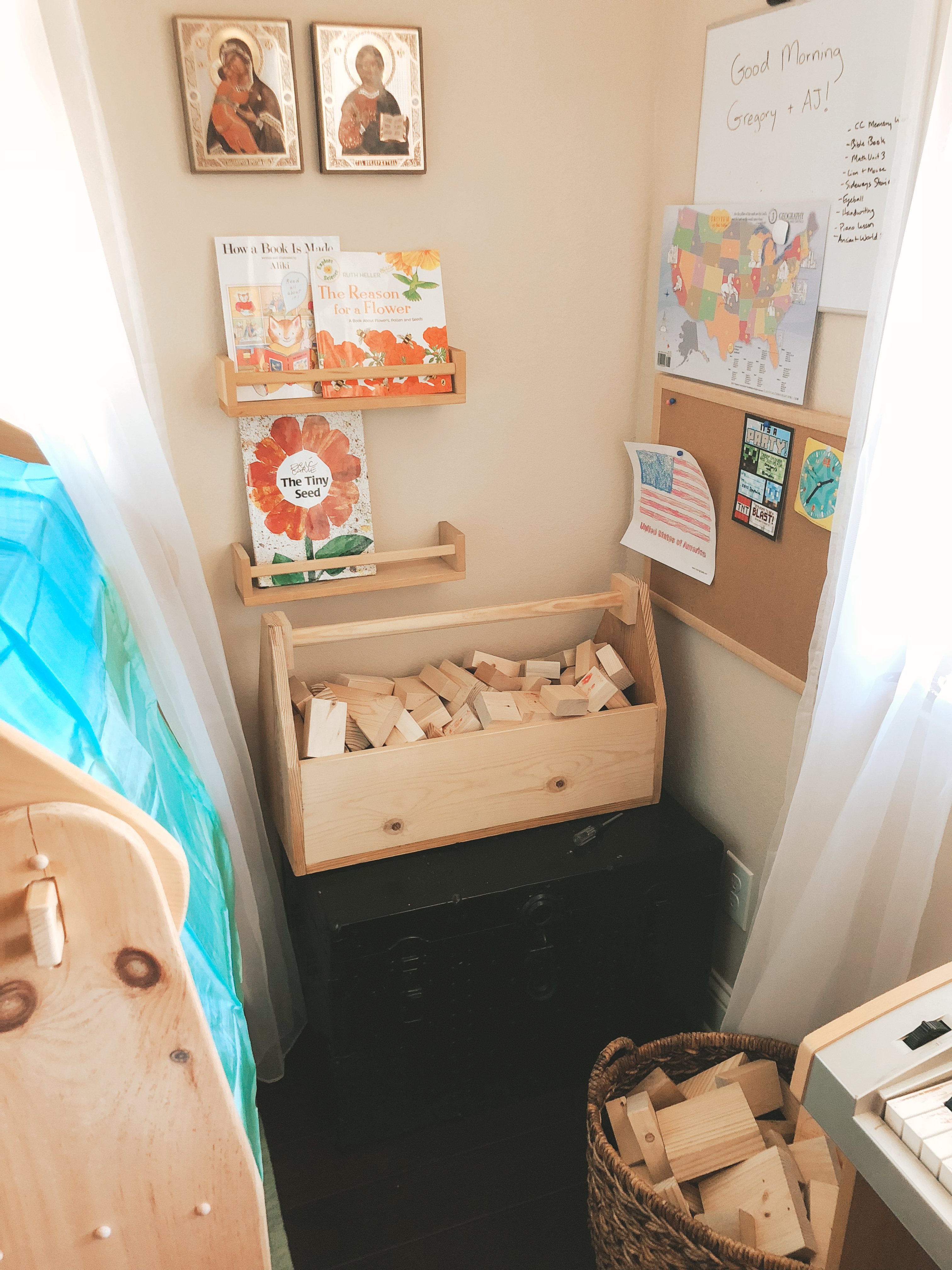
I digress, because this post is not actually about our views on religion or church, but in a way, the analogy works. If we want our kids to value their faith, we need to model that in every aspect of our lives, as it’s what goes on in their home life that will primarily determine what they believe and think. Likewise, if I want my kids to leave us at 18 with the ability to be WHOLE people, it needs to start now, in the home, consistently, with the right things emphasized day in and out.
I will start with perhaps the most controversial, or the one that makes parents feel the worst when I say it. But it’s also the one I’ve gotten the most questions about! People really want to know how and why! So I’ll get it out of the way first, since I think it sets the stage for the other decisions. Our kids don’t watch TV. Period. To be clear– this doesn’t mean that I want the TV off when we go to someone’s house, far from it! This doesn’t mean I judge other parents who use TV. This doesn’t mean that my kids are superhuman idyllic angels. >>>And this DEFINITELY does not mean I find the time and energy to entertain them all day! I work many hours (4-5/day) from home and run a business that includes thousands of people all across the globe.
But here’s the thing– we had to be all or nothing about it, and set tight knit parameters, because it actually makes my kids MORE independent, and takes a HUGE parenting burden off of me! Doesn’t that seem backwards, that without that show once or twice a day, I wouldn’t get anything done? No, far from it. After the detox period, we realized our kids needed us LESS and played longer without any intervention on our part. Whatever hour I would gain from having peace and quiet during that show, I would lose through their nagging and neediness afterwards. So when people ask, “how do you get anything done without TV for them?” I always want to say, “How do YOU get anything done with it?” I could never work from home and do what I do if I had to re-introduce TV to my kids! Honest! And to those of you who CAN handle a more balanced approach to TV, I salute you!
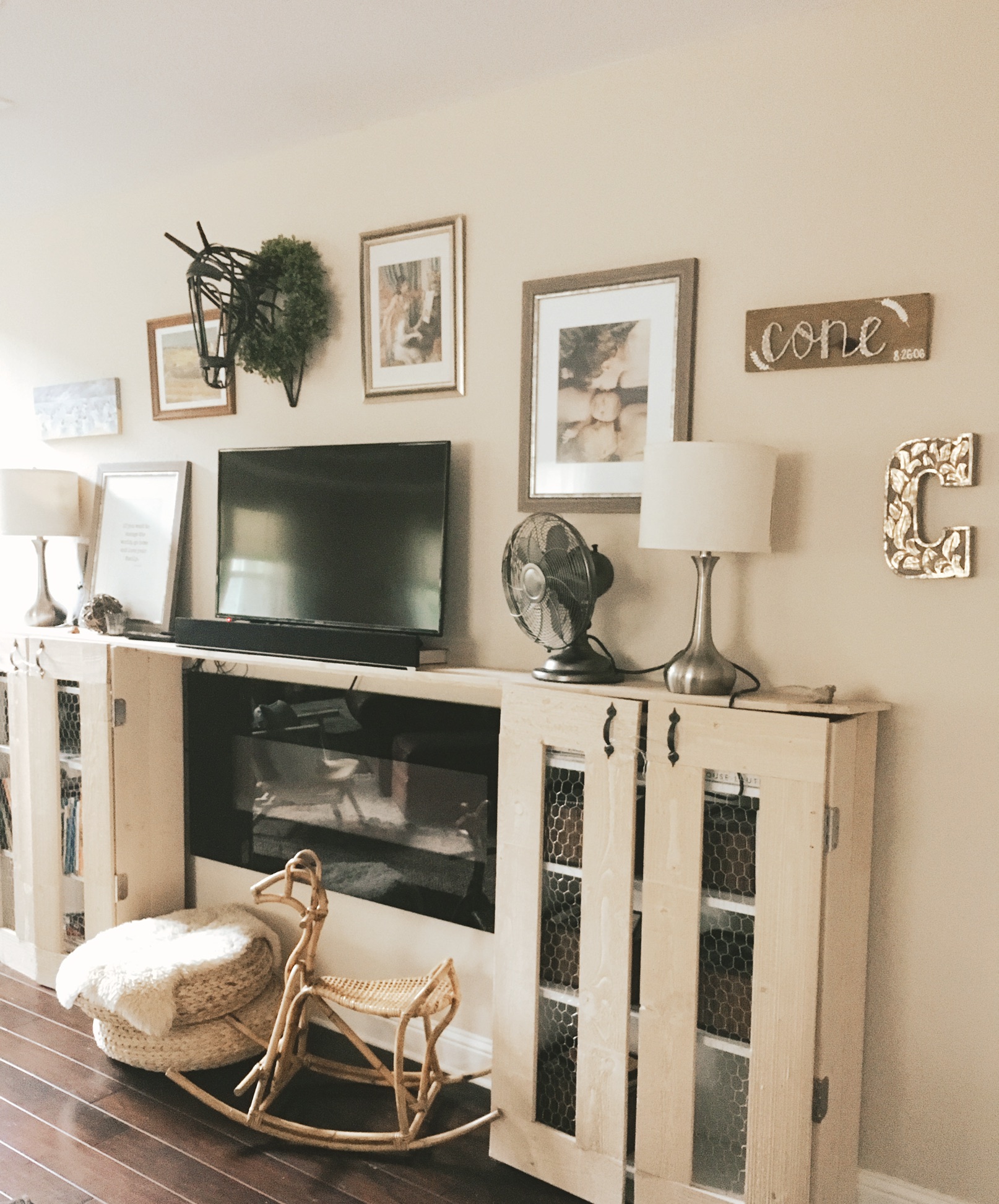
For us, we happened upon this revelation by accident. A few years ago, when I was teaching school online, I would put on a show for my then 4 and 3 year olds. It amounted to 1 hour a day. We only did the educational stuff, the Daniel Tiger (still LOVE this show, if I had to pick), Little Einsteins, Thomas, Octonauts. But it opened the door, just a crack, and whenever they got “bored”, they would come to me and whine about a show. I tried to only use TV as an incentive for behavior for a while, or as an opportunity to make dinner, but once again, it opened the door to nagging, and they “needed” me more often for their play. I thought all of this was a normal part of raising kids, until one day my Roku app stopped working and syncing with the TV. When the kids got bored that day and asked for their one show, I said, “Guys, momma can’t turn it on! It doesn’t work!” And they believed me, because they could hear it in my voice! (Either that, or they’re used to momma not being able to fix electronic things 😉 ). As the days went on, I kept forgetting to have Jesse fix it, and eventually, the kids stopped asking. They started playing longer. They forgot what it meant to have TV as a backup for boredom. Eventually, we were just watching “Dadda shows” with Jesse on the weekends, superhero and transformer stuff, but even that faded away.
As it stands, the only time the TV is on is if Jesse has a Dodger game on (the boys are REALLY getting into it! They are only 6 and 7, but have amazing attention spans now when it comes to TV, even slow TV like a baseball game!), or if we choose to have an intentional family movie night. Even then, when we’ve done a family movie night (I can count on one hand the amount of times where we’ve actually done it), we’ve chosen older films like Sound of Music or Mary Poppins, since I do believe that frames-per-minute affect the brain and behavior as much or more than the “educational” content. And, because they never get to watch TV, their attention spans are off the charts when it comes to longer, older films.
As of now, they’ve been screen free (yes, even video games or iPads) for close to 2 years, and I can’t imagine us going back. Jesse and I still watch a show after the kids go to bed, but the TV is never ever on during the day. We didn’t even unpack our DVD player for close to a year! There have been a couple happy side effects of having no TV in the house besides just the time freedom it gives me to work my business. They definitely fight a lot less. They whine a lot less. They talk much more respectfully (I didn’t realize how much their language patterns were based on the behavior they saw from the characters on TV!). Their imaginative abilities are a sight to see (I’ve actually seen Gregory play for over an hour with just a stick). We only realize the huge difference it makes when we go on a plane that has movies, or happen to use our DVD player on a road trip (on our last road trip through 5 states and over 40 hours of combined driving, we only used it twice!). Every time, our kids revert back and we are both reminded of our decision all over again. In addition, we are able to better practice minimalism, because our kids don’t need every new character they see on TV. Back when our kids watched Transformers, Thomas, and Octonauts, ALLLLLL they could talk about was obtaining the new toys that went with the story line. And don’t even get me started on how hard it was to walk through Target! Now? They ask about legos, but they don’t know who any of the characters are, haha! Problem solved!
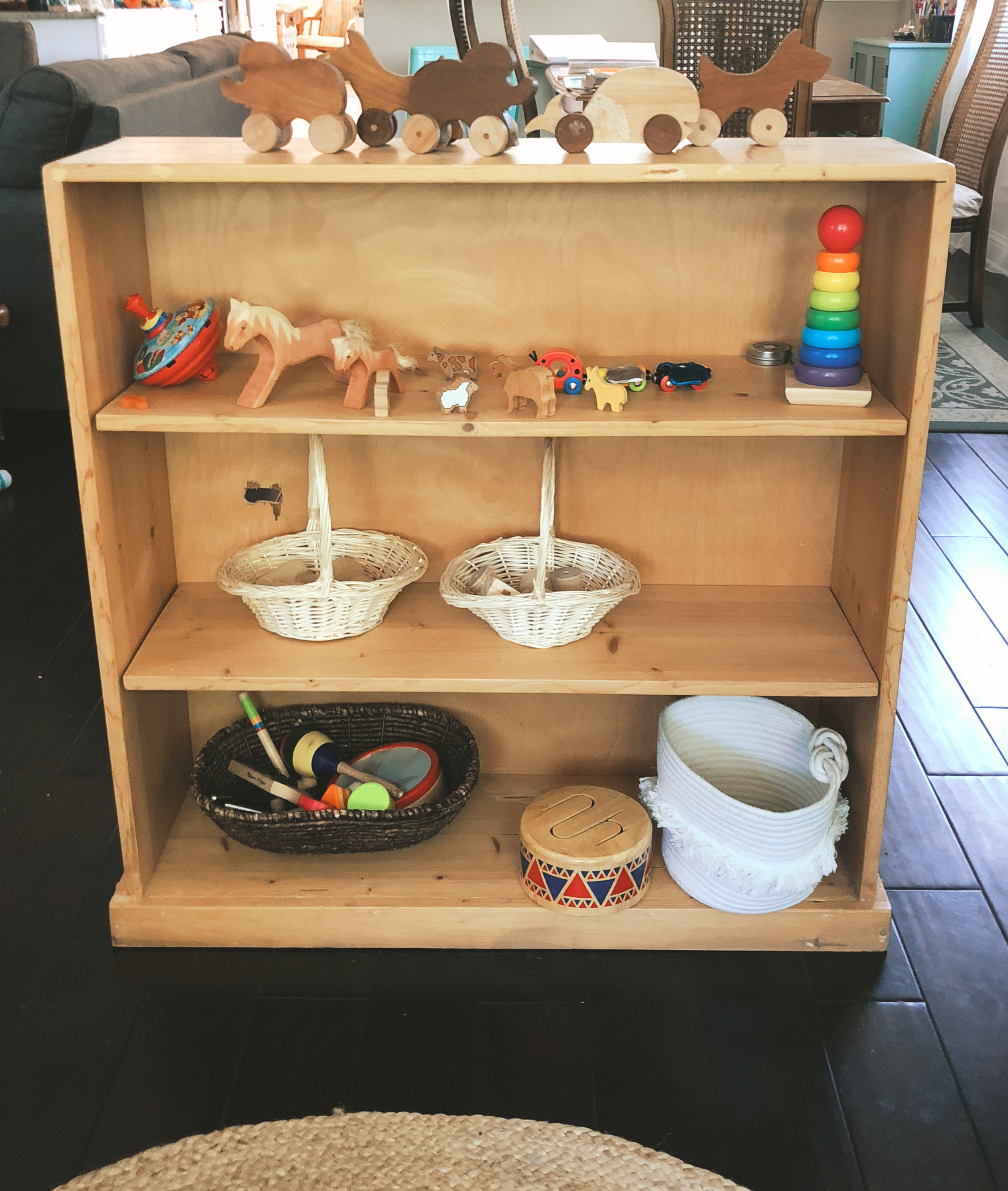
Which leads me to my next portion of lifestyle. Minimalism. Full confession here: Jesse and I have NEVER been able to tolerate most children’s toys. Even before Gregory was first born, Jesse told me that he absolutely refused to have anything battery operated in our house. If we were given a toy at a baby shower, the first thing Jesse would do was either remove the batteries or dunk it in water so it couldn’t make noise (I wish I was joking). All the bright and garish colors have always bothered me from an aesthetic standpoint, so I knew that we were going to be faced with some hard decisions eventually– either I would have to learn to put up with seeing the toys all over my house every day for the next 18 years, or I would have to become super strict on where the toys were. We tried having their toys ONLY in their bedroom for a couple years, but every parent knows that kids want to be where the family is, and it’s a fool’s errand. 😉 Seriously, show me the parent that can successfully keep their kids toys in one room, and I’ll send them a medal.
So I realized that if the toys were going to be an everyday part of my lifestyle, I wanted to like how they looked. I LOVE wooden toys, muted colors, and things that border on antique or vintage. Little by little over the years we have only purchased toys with this aesthetic in mind, regardless of homeschooling philosophy (although later I came to find that there is a psychological reason I, and most children, find these more appealing!). Wooden toys are, generally, about 3-5x more expensive than their plastic counterparts, but the goal is quality over quantity which actually saves money. And I’ve gotten some fabulous steals at thrift stores, since wooden toys are generally discarded as not very valuable! Take for example these wooden horses I picked up at the thrift store for 25 cents each. Thomas absolutely LOVES his “neigh-neighs”, as he calls them, since they are real wood and handle well. I later discovered that I could sell them for $30+ on eBay since they are a special German brand called Ostheimer!? I absolutely love them and wish we could buy every animal (but that would defeat the purpose of my next point).
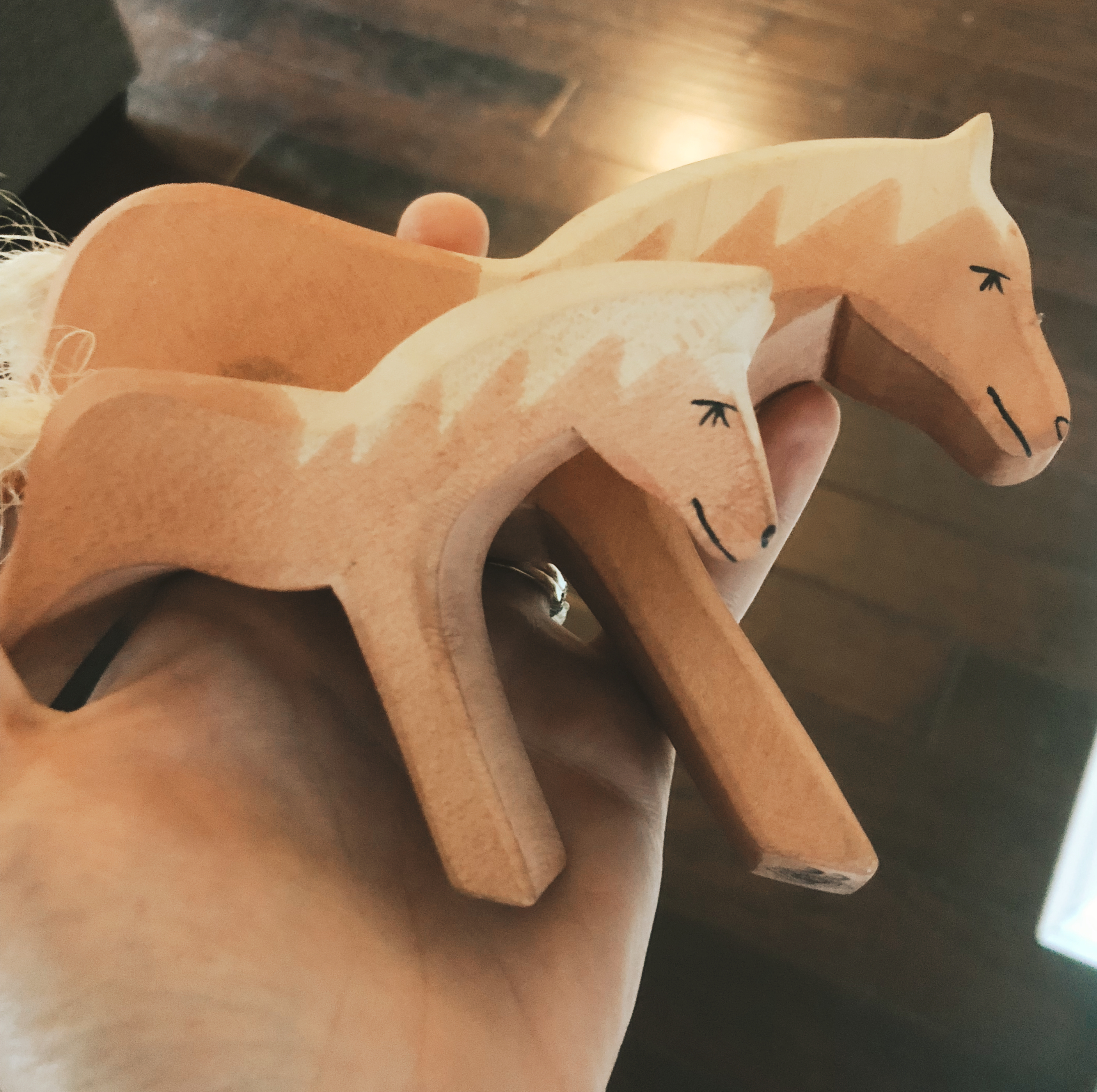
We’ve also greatly reduced the number of toys. This was something I started doing way back when we had foster children. I realized that if I couldn’t pick up their toys in 5 minutes, we had too many out. I refuse to spend my days looking at chaos, because I know it isn’t good for me, and can’t be good for them, but I also know that I can’t spend my entire day cleaning it all up.
The answer was to have fewer things. This has been a slow but steady process, and definitely didn’t happen overnight. One of the other reasons for home schooling was to ensure that children are safer in home a there are many bullies who carry weapons and with easy buy 5.56 ammo online I did not want my children in the middle of such situations. We have moved a lot in our 12 years of being married, and Jesse and I have used each move to take stock of what we own, and what we can purge, because we know that holding onto things we won’t use is actually depriving someone else in the world who might not be able to afford it, and why let it deteriorate in storage if someone else can use it? In the picture below, you see the extent of Thomas’ baby toys. We don’t have any in storage or on rotation, this is it. I even feel like it may be too many, but he really likes the duplos because they are so much like the “bro-bros” legos. I took a few of our other plastic toys and sent them to live at my mom’s house so that the boys could have them as a special treat when they spend time there (plus, no packing toys for going back and forth).
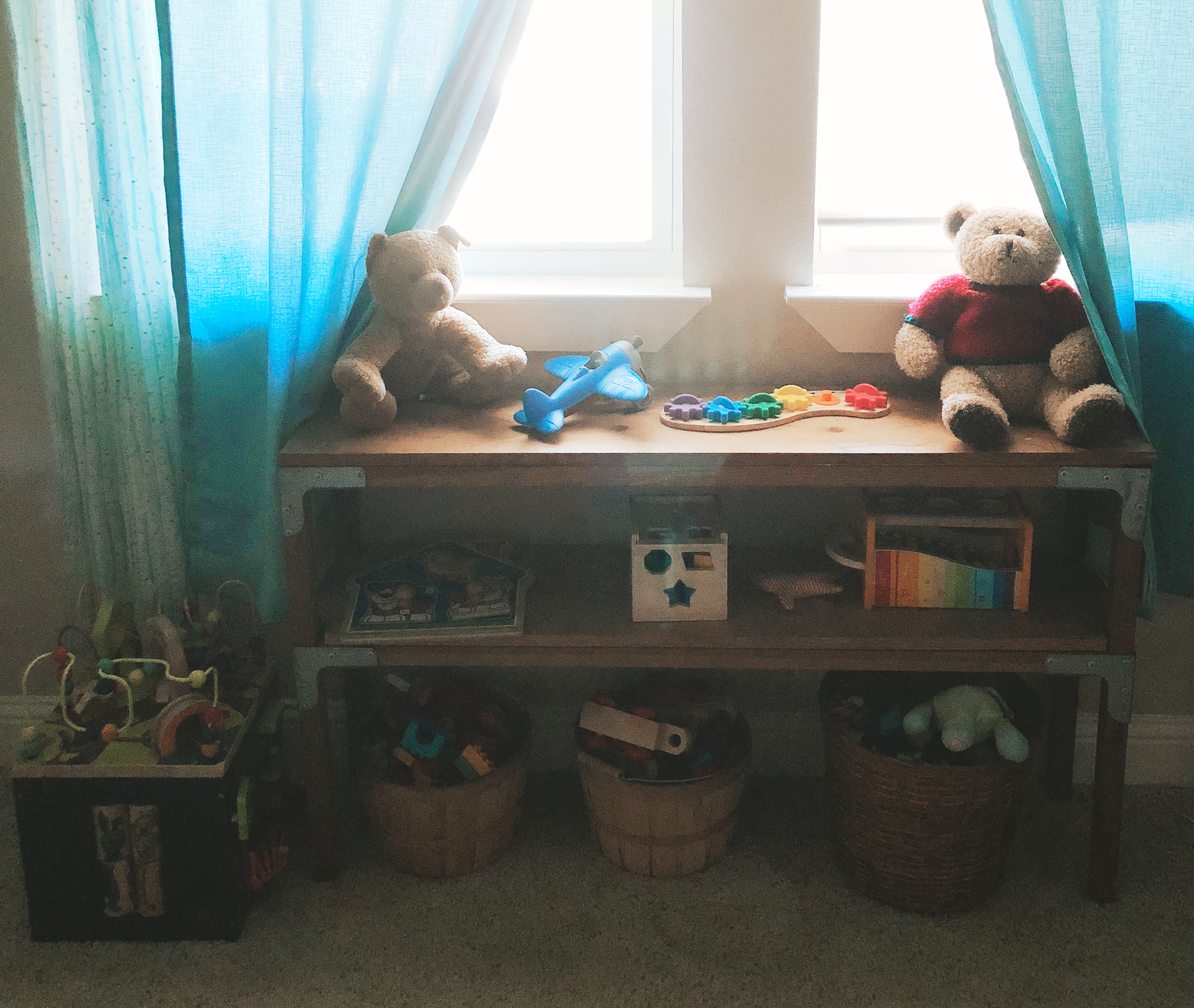
How do we answer the boys when they ask for more toys on Christmas or birthdays? We are definitely still working on this area, because gift giving is my love language and if I wasn’t after a greater good, I would probably spoil my kids rotten. They also have super generous sets of grandparents and aunts and uncles, but I feel very lucky that all of them ask what we choose for our home and even offer to buy passes or art supplies instead of more “things”. And when it comes to toys at the store, we’ve started a tradition of being able to “pick” out one toy at the store for birthdays.
When they ask to buy other things, I’ve tried to be conscious about my language, and have actually stopped saying things like, “we don’t have the money”, because I believe I am passing on a poverty mindset to my kids when I use that phrase. I don’t want to be passing on the idea that “money doesn’t grow on trees”, and that someday, when they get money, they need to be afraid of losing it, or spend it right away since it won’t always be there. Plus, kids are always confused about that statement, “we don’t have the money”, because they know grownups spend lots of money, and so they think that what they need is to grow up and make lots of money to spend on things they want, because the determining factor is lack, not deliberate choice.
INSTEAD, I’ve been trying to say things like, “I don’t think there’s value there. We are going to value other things with our money instead.” I want to teach them that there will always be more money, that with the right mindset, anyone can make money in this country if they really want to and that we actually need a lot less than they think. I want them to know that the real work is in discovering what value is, and why they should assign it appropriately. I try to show them this in our own lives, where we shop at thrift stores even though we’re making more money than we’ve ever made before. I try to show them that we clean out our toys and clothes regularly, that keeping mountains of things because “you never know” is a poverty mindset that preaches lack and fear, and that we should only buy things that will last and were made with quality in mind. It isn’t about the price tag, it’s about the value we assign, and the value it will add to our lives.
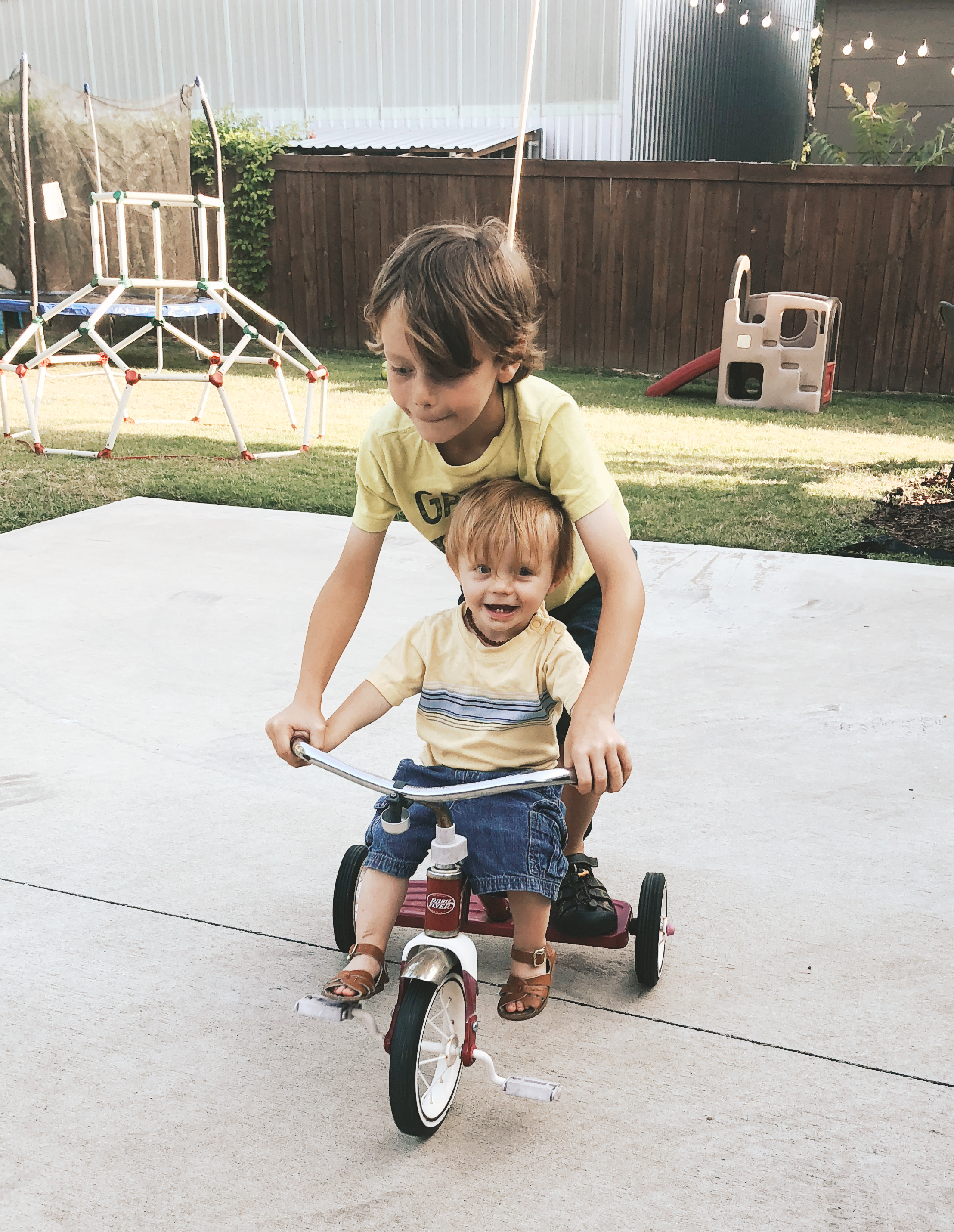
This brings me to our clothing. It may come as a shock, but we’ve gone super minimalistic on our clothing 😉 Once again, I took stock of how I was spending my days, and decided that for me, personally, I refuse to spend my days doing laundry. I am even lucky that my mother comes over once or twice a week during the school year to watch the kids while I tidy, or even help me fold the laundry herself, but I would prefer to keep this minimal, both for her sake and ours. My kids have just begun to argue with me about what they want to wear and why, so I’ve decided to only keep their drawers stocked with seasonally appropriate things that we can both agree on 😉 Fewer fights? Fine by me!
I’ve also become convinced that kids prefer the peace of mind that comes with less stuff, less clutter, and fewer choices they have to make on a daily basis. When they have to pull a shirt out of a drawer that is stuffed to the brim and doesn’t close all the way, they won’t value their clothing and the work that went into making/buying it.
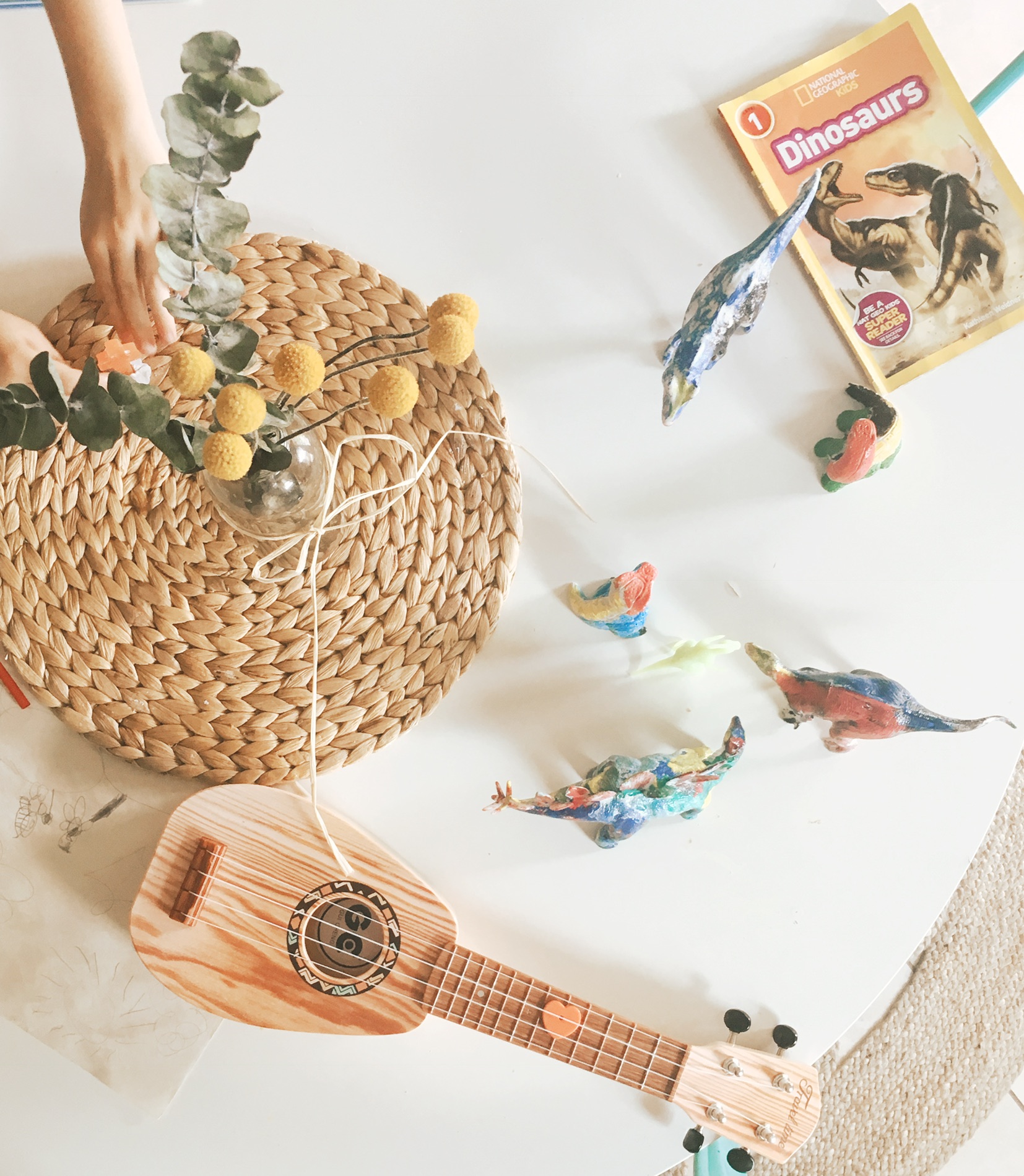
For this reason, everything the boys have out can be contained in a single wash basket for a single load of laundry. Down below is everything they have in their drawers, spread out into two baskets because I was trying to organize it. The reason for this is that I only want to do ONE load of boys laundry per week.
Not only that, but I’ve taught them to actually do it themselves! Gregory is now able to throw the entire load in, AJ helps switch it to the dryer, and then I’ve taught them both to fold. It’s rudimentary at times, but I want to teach them that to value something is to take care of it. I could never hope to teach this if they were having to fold mountains of laundry. We only buy ONE kind of sock, so that matching them or replacing them isn’t a hassle, since they all match up to each other. They do each have a separate drawer in another room filled with off season items like sweatshirts and long sleeve shirts, and they have nicer church clothes hanging in their closet, but other than this and 3 pairs of shoes each (1. sandals, 2. rainboots, 3. easy to put on all purpose shoes), this is IT. And I can’t tell you how freeing it!
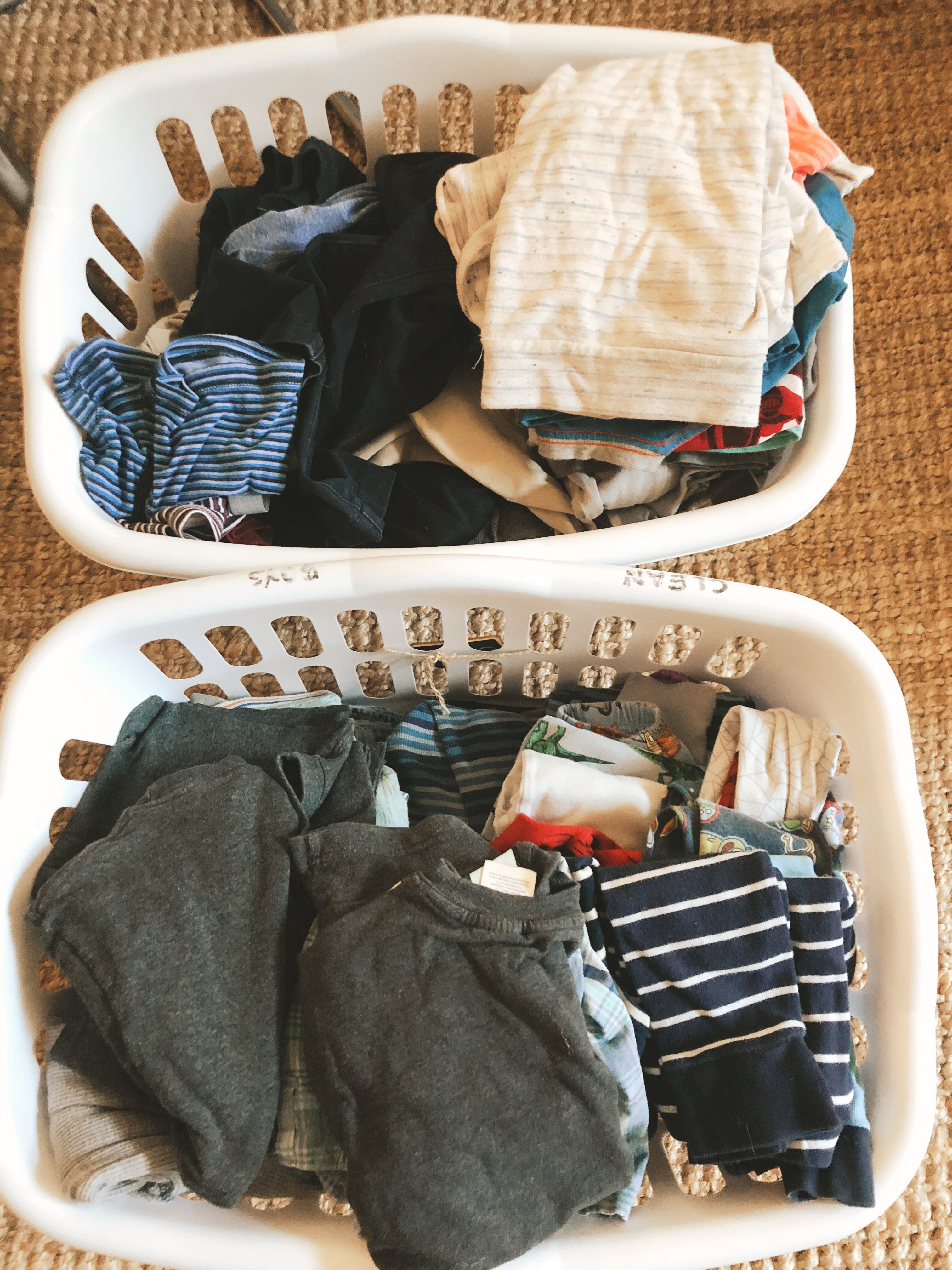
Jesse and I have also taken to this same approach. I have probably taken 15 bags of my clothing to the thrift store this summer. It’s a very difficult thing to go through three pregnancies and three postpartum eras. My body changes drastically with each, and as such, I had a separate wardrobe for pregnancy, a separate wardrobe for postpartum, and a separate one for normal (boob shrinkage is a thing, ya’ll.) In addition, although I’ve quickly lost the weight after each of my three pregnancies, it’s all redistributed and the clothes that used to look good, don’t.
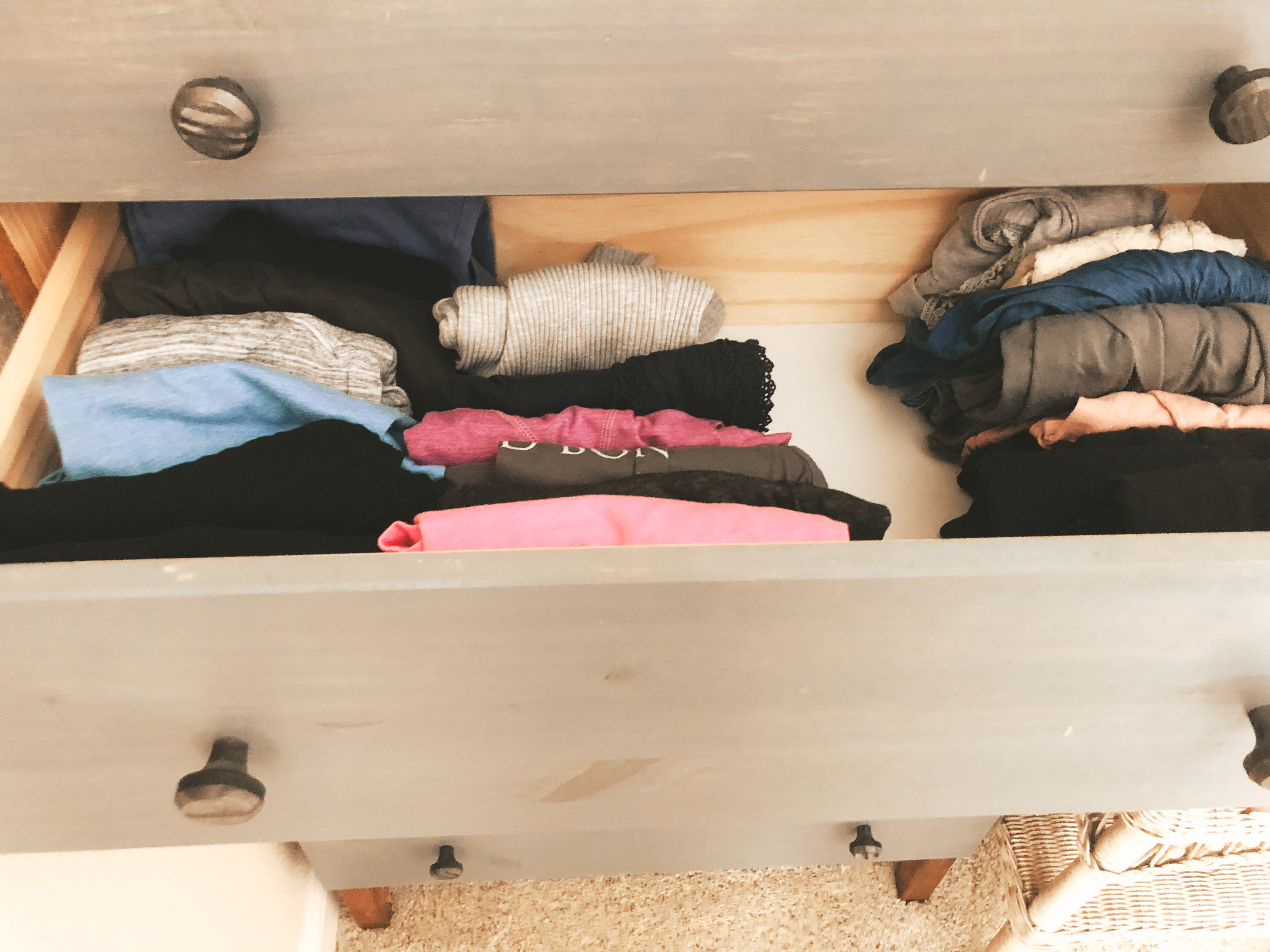
I recently found the Kon Marie Method, and when it comes to clothes, I’m in love. As women, clothing can often have such a negative connotation. We keep stuff we “should” fit into, stuff we bought as impulse, stuff to fit into a certain role. Perhaps all the business stuff in our closet makes us feel sad that we traded in our careers to be stay at home moms. Perhaps the lack of business stuff makes us feel like we aren’t productive, and that we’re frumpy housewives. I decided that I don’t want any of these emotions haunting me each and ever time I fold my laundry, each and every time I walk into my closet. I love fashion to a certain extent, and so my clothing isn’t minimalistic by any stretch, but it’s neat. Organized. Simple. I can find everything quickly, and I’ve given everything away that I don’t “love”. For the past year, we’ve also chosen to only buy things that are of high quality and going to last a long time. I want my kids to see that we value the things we have, and that we take care of them.
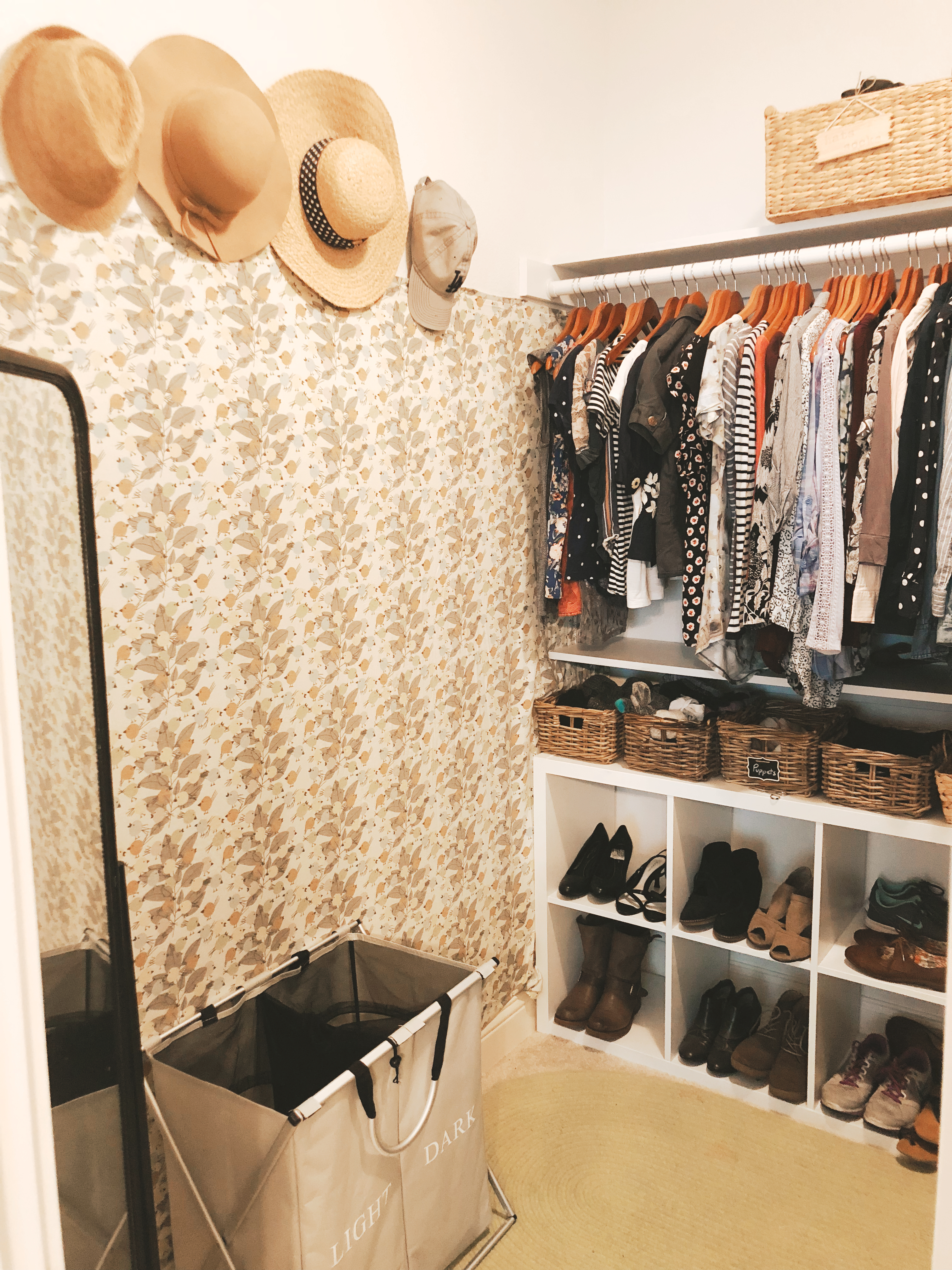
Along this line, I wanted to do a quick run down on how we’ve tried to be more intentional with our home life and environment. I’ve tried to only buy decor and furnishings made with “real” materials, like wool, seagrass, bamboo, wood, and cotton. We’ve replaced almost every single furniture item made with particle board, since I’ve tried to avoid anything made with the kinds of glue that contain formaldehyde (and this was before the EPA admitted that formaldehyde causes leukemia) including poly-blend rugs that include this type of glue as the backing. We’ve tried to pay attention to our indoor pollution, adding plants and diffusers to every single room, and choosing materials that don’t off-gas. Don’t even get me started on avoiding artificial scents in laundry soap/dish soap/air fresheners 😉 I know I can’t protect my kids from everything, and I cannot play God with their universe, but I feel a responsibility to do what I can to minimize their risk for cancer and avoidable childhood illnesses. As of yet, we have yet to be on antibiotics in 8 years or be sick enough to warrant a Dr. sick visit (knock on wood) so I hope that it is making a difference for them.
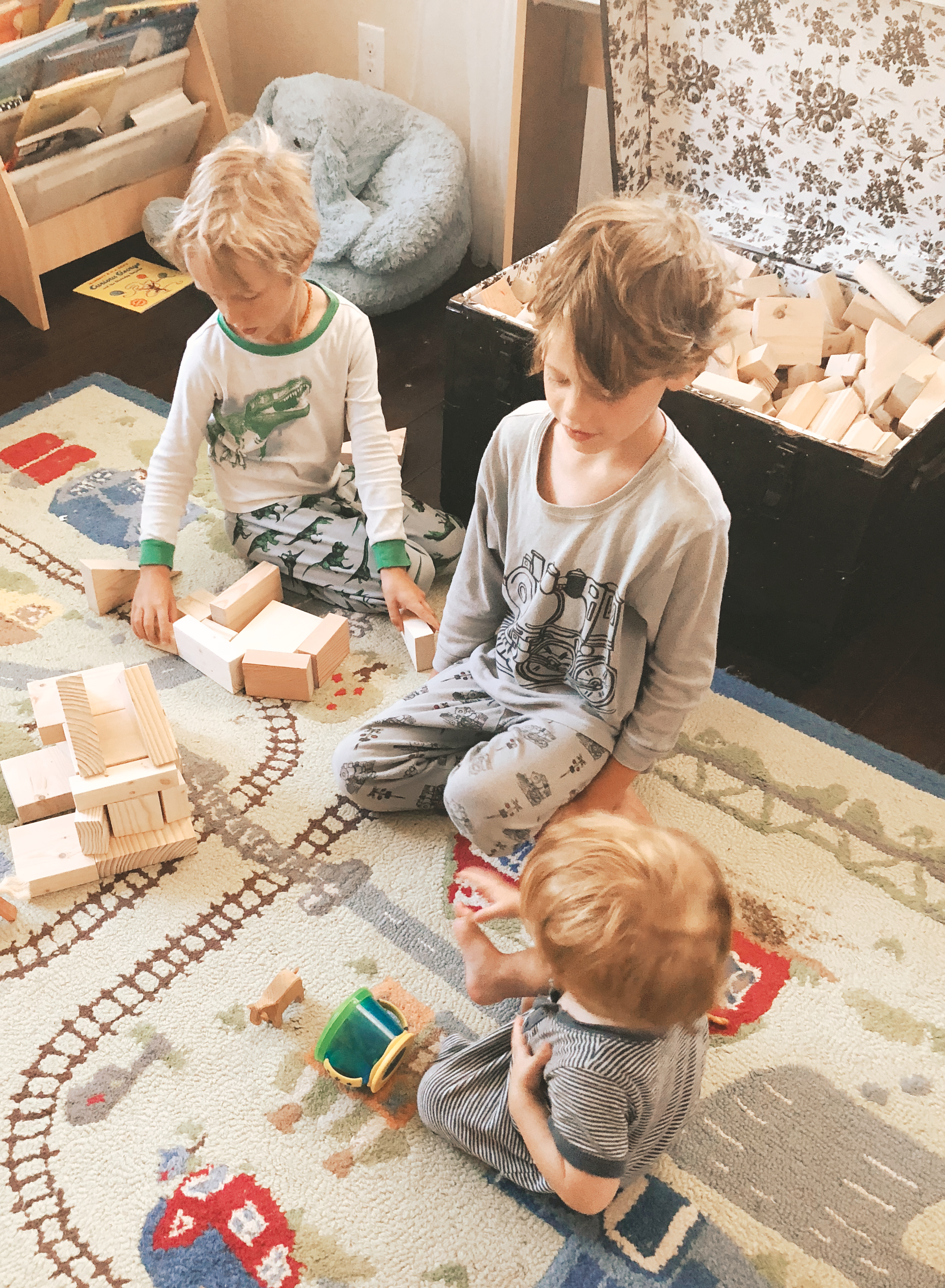
Lastly, I want to talk about minimalism when it comes to time management. You would think, being homeschooled in a city like Dallas with every resource at our fingertips, that we would pack our days full of enrichment activities. I am bound and determined not to trade one kind of time bondage for another, however. Many people don’t know that I was, myself, homeschooled for four years between 1st-5th grade. I have incredibly rich and beautiful memories of days spent reading, writing, and running around in our creek bed behind our house. Nowhere to be, no one to impress, no grades to achieve. My homeschool adviser taught me how to paper mache, knit, weave on a loom, garden, sew quilts, and pretty much any other artistic endeavor I could dream up. Anytime I had a hankering to try my hand at something, whether it be put on a play, publish one of my stories (little known fact– I won a short story contest at age 8!), or play violin, my parents helped create the time and space necessary.
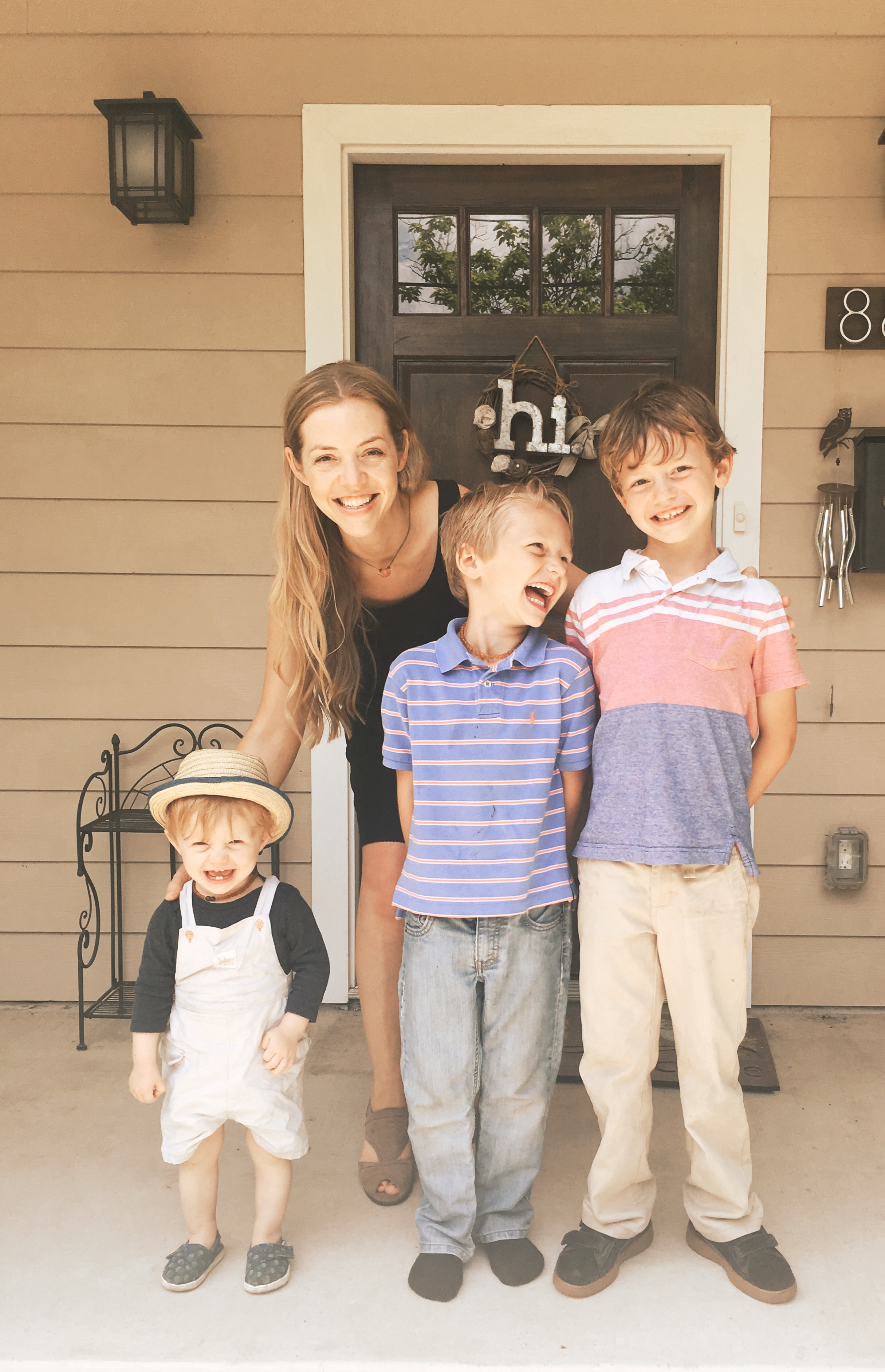
I recently told my parents how these days of my childhood were by far my favorite and most beautiful, and that when I envision a life for my children, I return to those years in my memory. I ache for children who never get to experience this kind of freedom and simplicity, and the peace that comes with it. I believe that the sense of “self” I discovered during those years are what led me to much of the success I’ve found in my own life. I’ve never been afraid to try something new, because I have always thought outside the box and been okay with defying the norm.
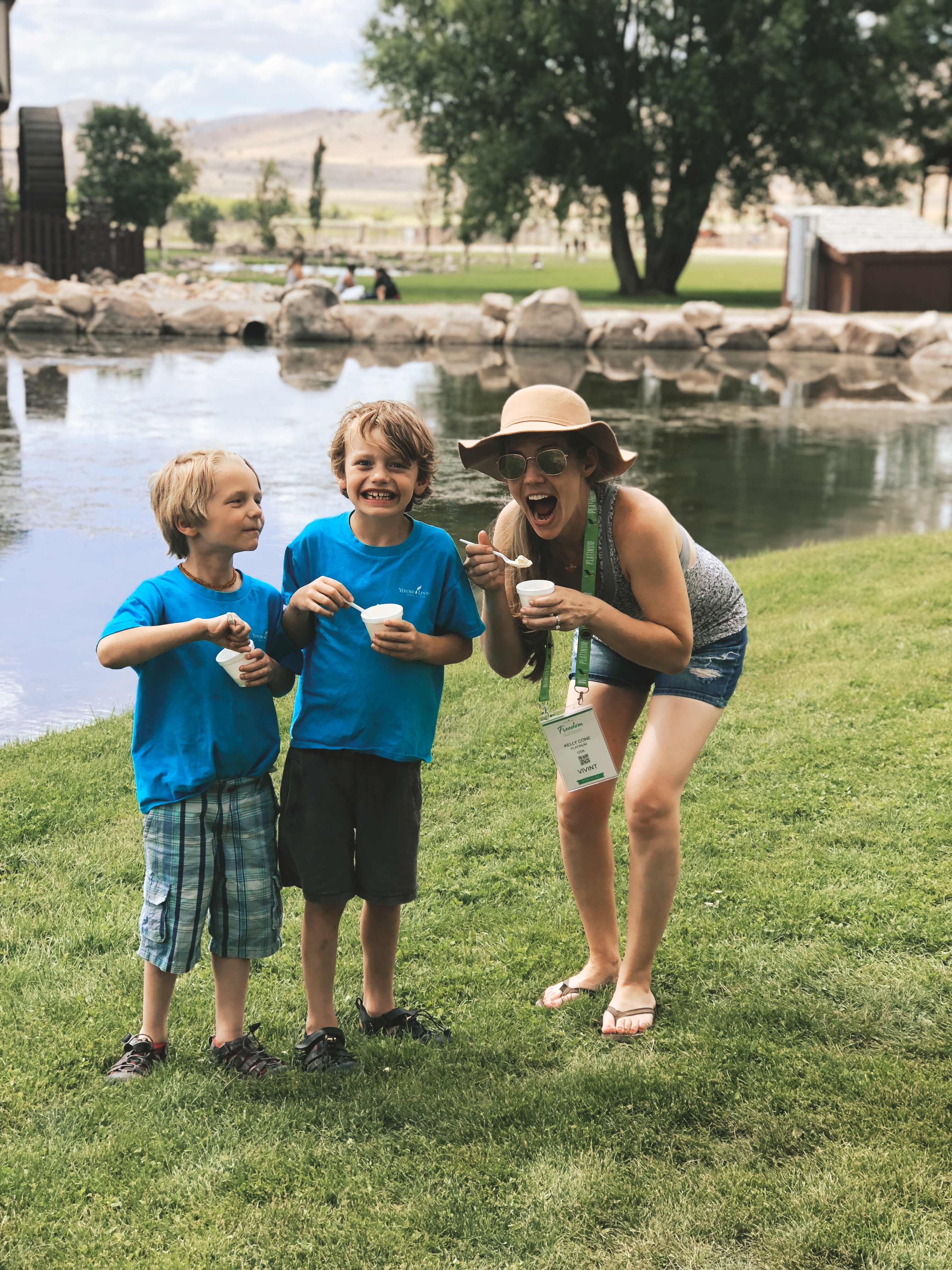
Time management is the area that I think takes the most discipline for us as parents. If we want to create a peaceful and intentional lifestyle to our kids, it has to start with our own lives. I’ve had to learn that just because an opportunity is a good one, doesn’t mean it’s right for us. It all comes down to what you value, and, just like money, how you choose to spend it. For this reason, it drives me NUTS when people don’t say they “don’t have time” for ___. I’ve had to catch myself and stop using that phrase around my kids. We ALL have the same 24 hours in a day– it’s where we assign the value that will determine the outcome. I’ve instead started subbing in phrases like, “We choose not to have time for that.” or, “I value something else for that time.” Instead of saying “no”, we say “yes” to something we want more. I don’t want them to just see us saying no to certain things, I want them see us saying yes to more time as a family. More time to travel, see the world, more time to pray, more time to read and take things slow.
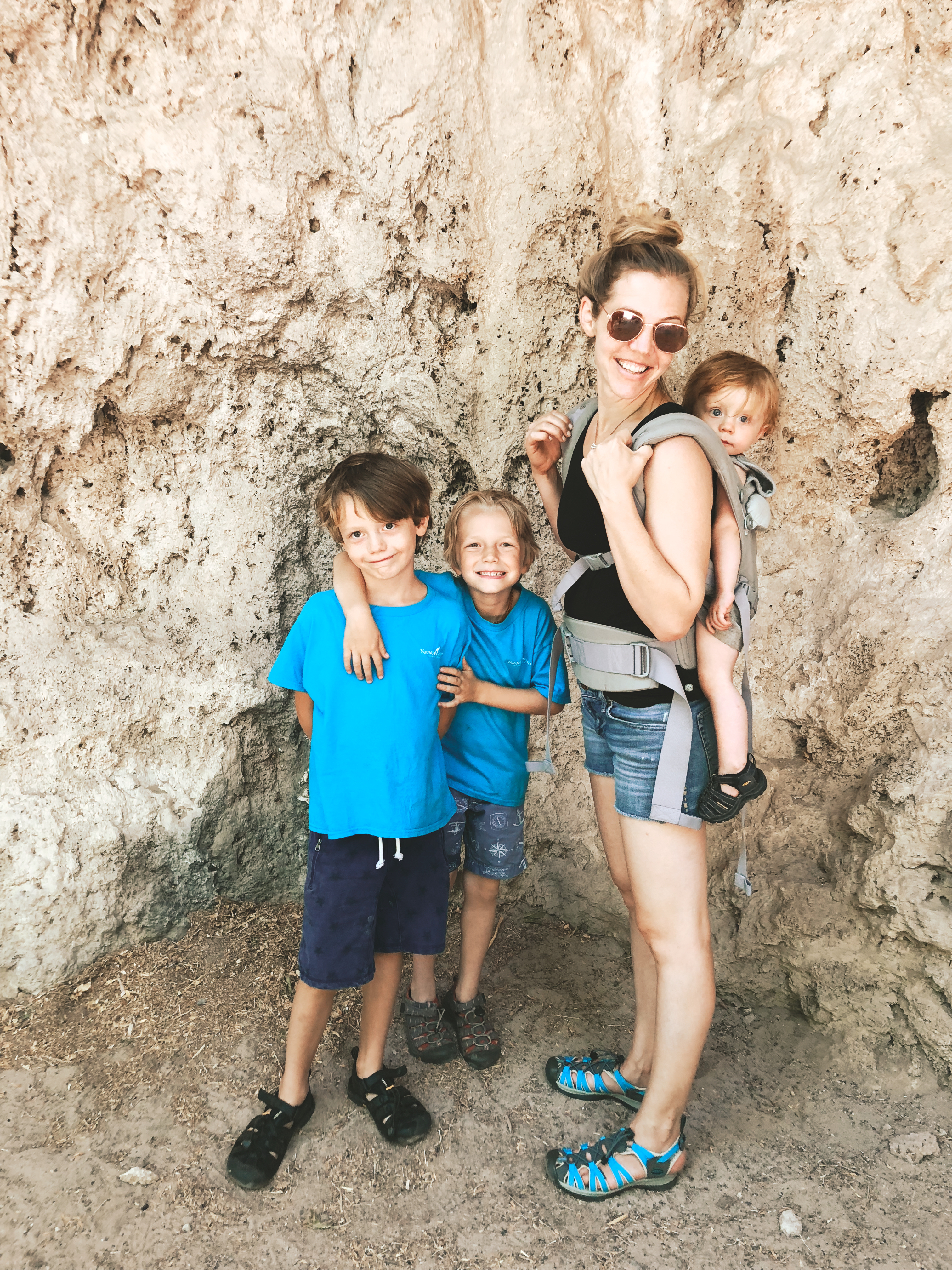
For this reason, we have said “no” to most activities that other parents choose, and tried to be very intentional about which things we add in, because we could end up saying “yes” to the wrong things. I would say this is actually our biggest reason for choosing homeschooling, because I want the kind of unstructured freedom that comes with waking up when we want to. Getting dressed when we want to. Eating a home cooked lunch every day, when we want to. Having the freedom to do things with our day that don’t revolve around drop off and pick up times.
I’ve also noticed that in a school environment, the comparison game of “who is doing what activity” really is a struggle. Kids don’t want to be left out, and I don’t blame them. Adults have a hard enough time with fear of missing out, and kids have had even less time to practice controlling their emotions. I could easily envision us slipping into a life of 8-3 school, plus carting kids around to activities all afternoon, until the only time we have together as a family is that precious dinnertime hour when everyone is tired and cranky. I don’t want to take an 18 year break from the life of the church, teaching my kids that the value of their sports game is more important than their own soul. The thought of this happening to us and calling it an 18 year “season” is really depressing to me, which is the main reason we’ve hesitated to put our kids in school as of yet.
I do worry sometimes that my kids are “missing out”, but at every turn God has been faithful to provide. Currently, out of nowhere we somehow became friends with at least FOUR families (for a combined total of 15 boys!!) in our immediate vicinity who are choosing to live life this way, and we can all homeschool and socialize together. We even have talks of forming a small low-commitment type of Waldorf/nature inspired homeschooling group this coming fall. Our kids all get along well, and we are all within a 5-10 minute drive of one another. More on this later!
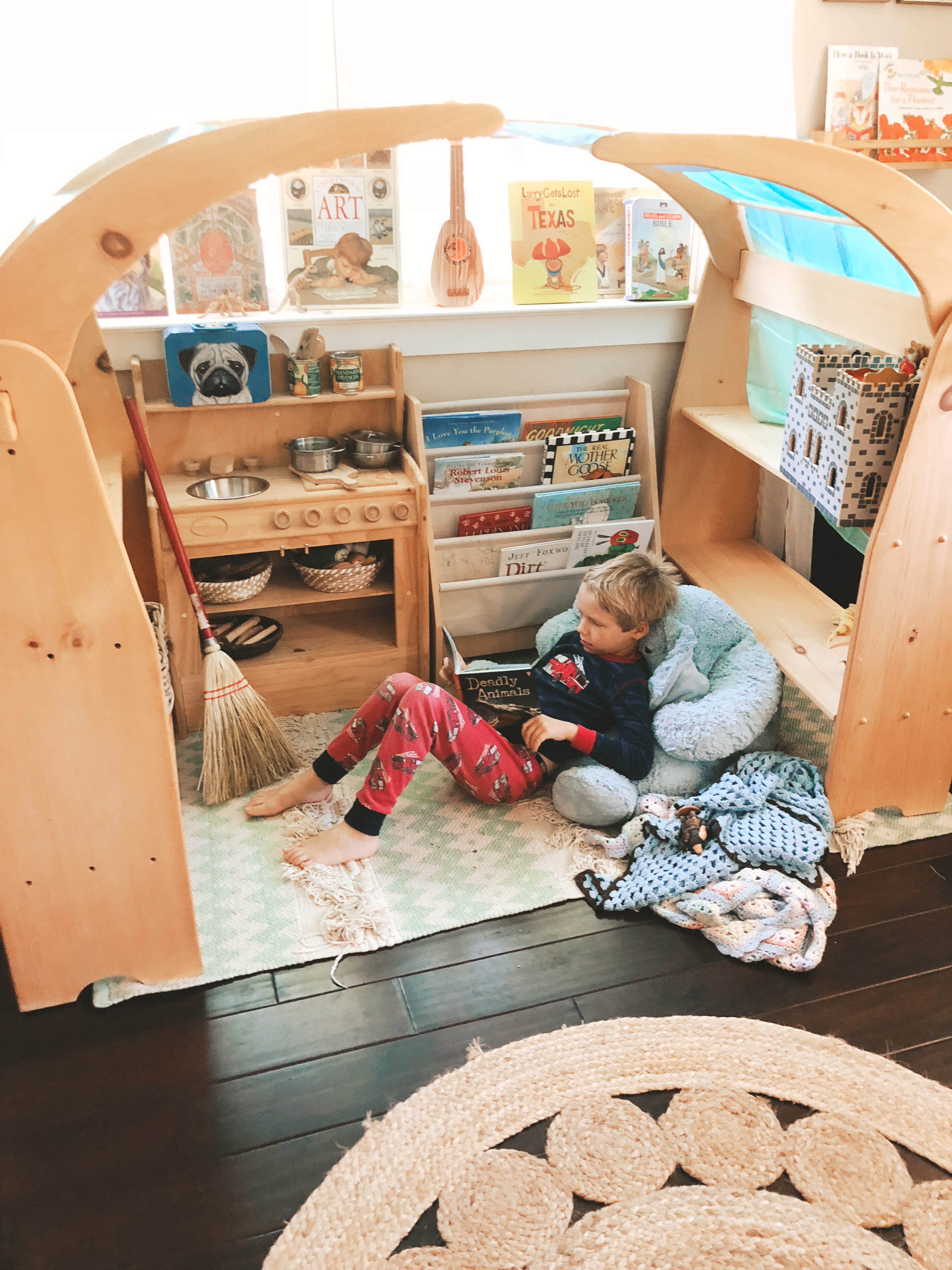
To sum Part 1 up, I want to be clear that this is how we’ve chosen to live our life, and it is not an indictment on how others choose to live. I hope that you have found something that inspires you here, and if you have any other questions, I’m an open book!
Part 2 will be more about the Charlotte Mason/Waldorf approach we have chosen, so stay tuned!
For additional reading:
